37 Most common weight loss mistakes 🥗
-
1. Following a temporary diet
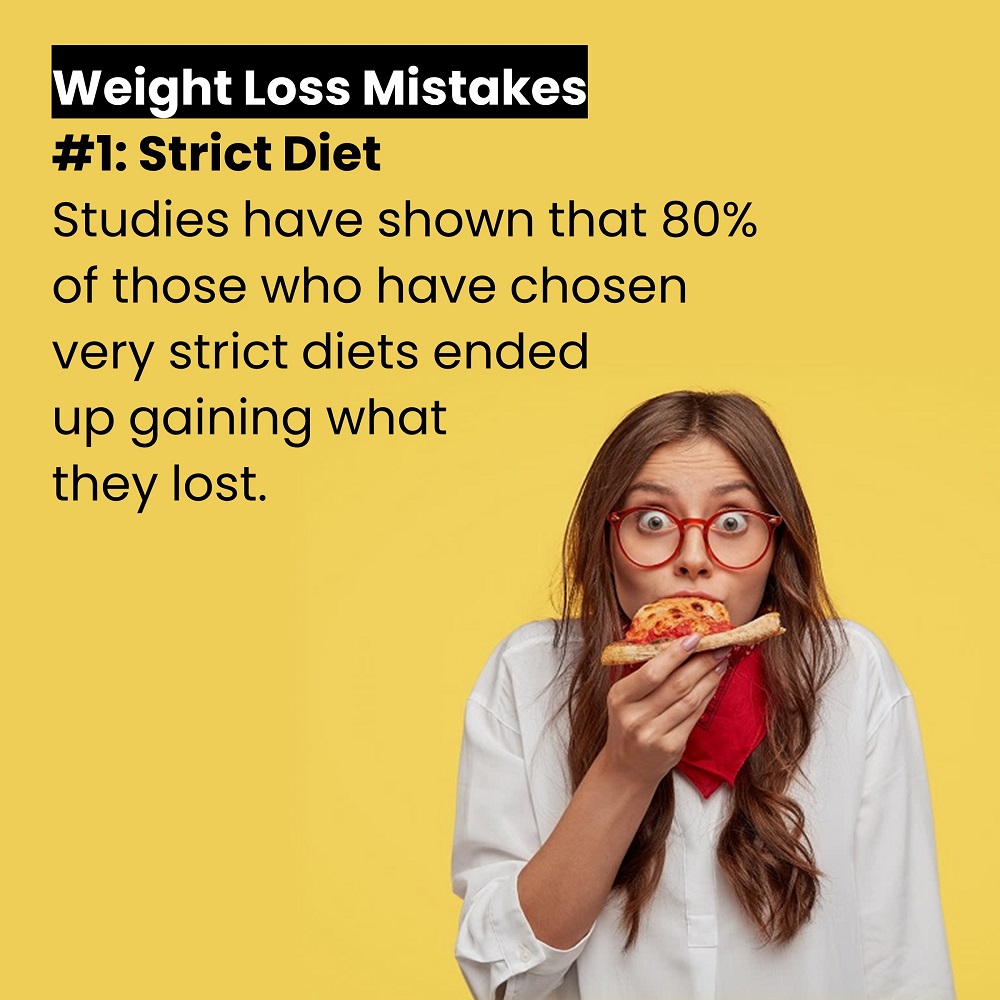
It is very important to have a diet that you can sustain for life. A short-term strict diet will probably fail in the long run.
Recent studies have shown that 80% of the people who chose very strict diets ended up gaining what they lost.
The word "diet" in itself implies something temporary. Get rid of the world and use "healthy eating habits" instead.
-
2. Adopting dramatic changes
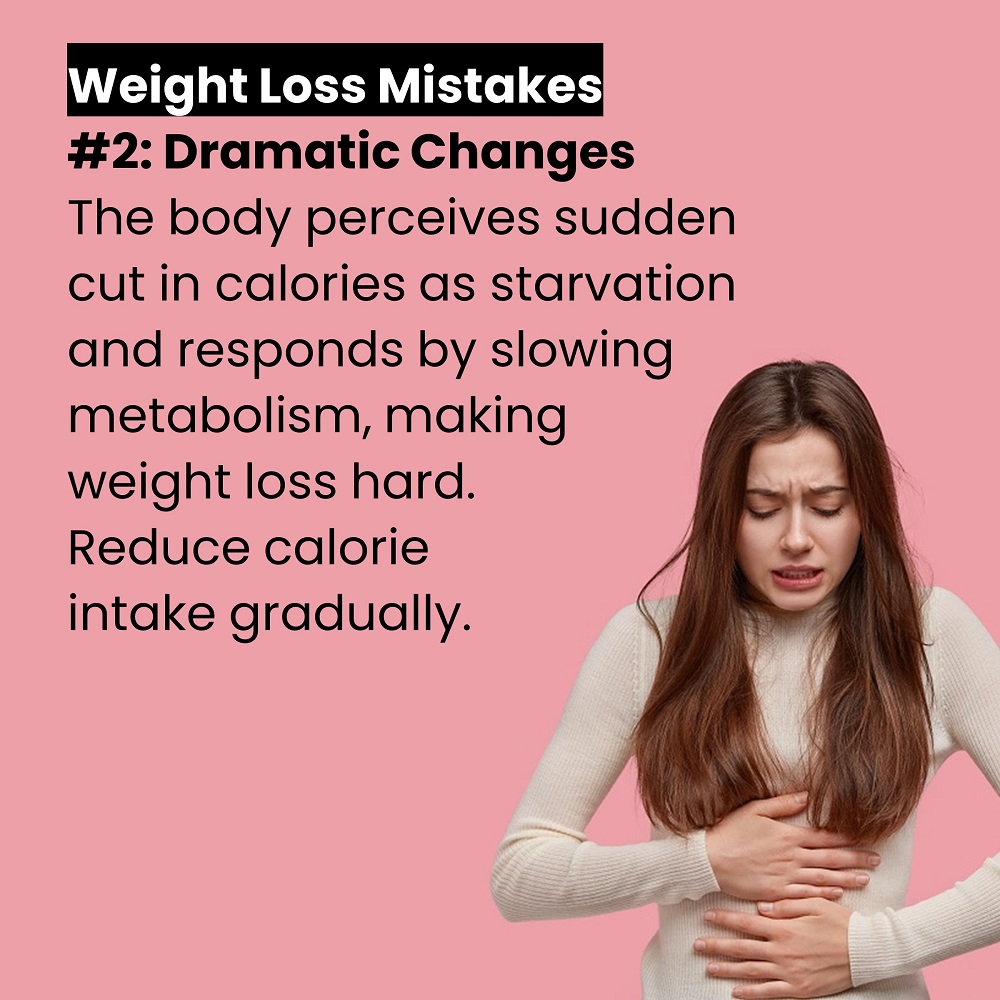
The most common mistake people make is changing their eating habits dramatically in the hope of quick results.
When you cut on calories too much in a very short period of time, your body perceives this as a state of starvation. When that happens, the human body automatically slows down its metabolism rate in response because it is trying to protect you (starvation = threat).
In order not to get into this situation, you should reduce your calorie intake gradually.
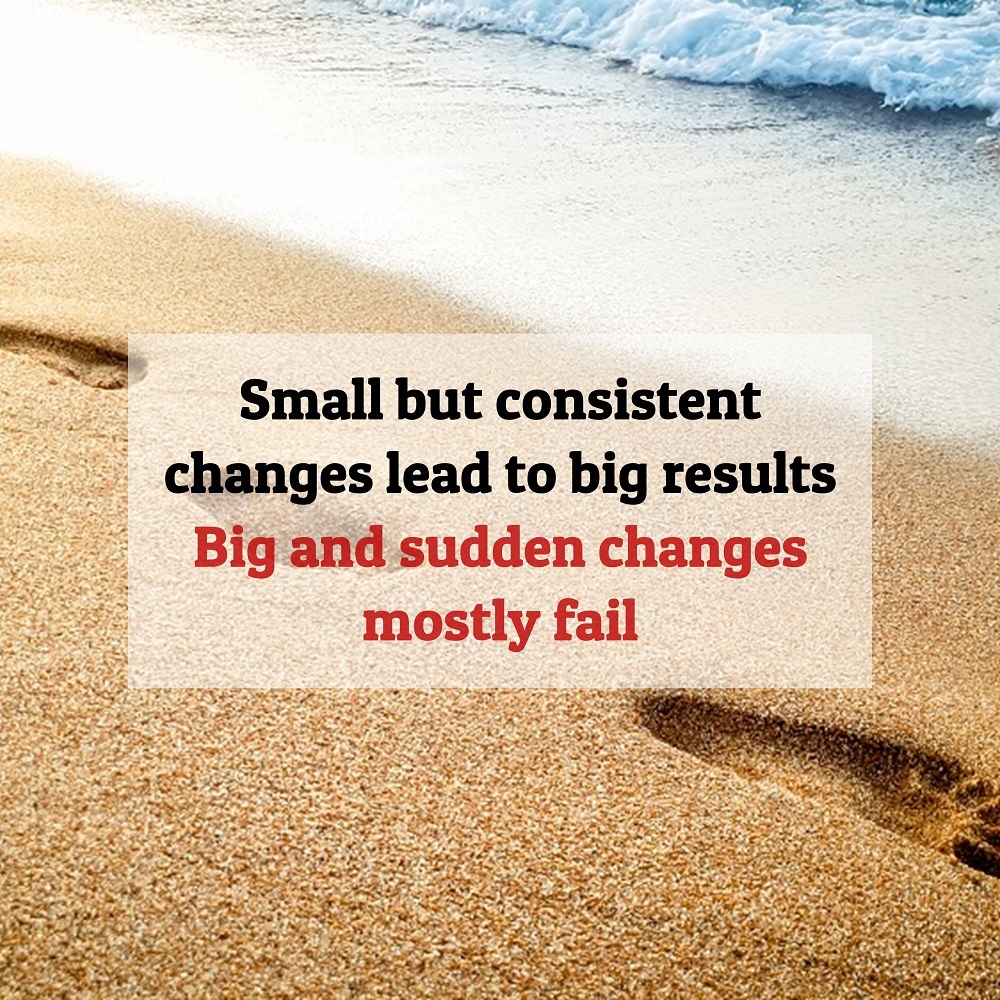
-
3. Rewarding yourself too often
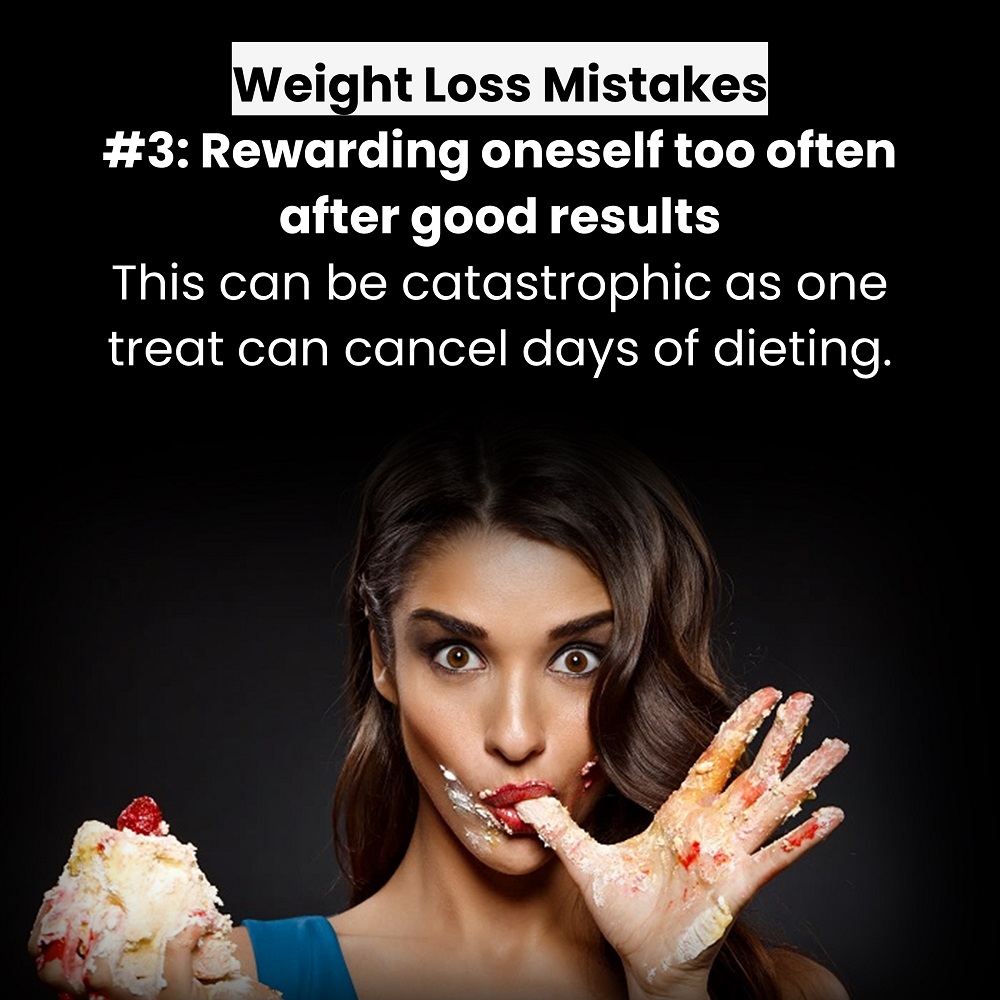
When dieters see some good results following a successful drop they tend to give themselves a reward for that achievement, usually in the form of a high-calorie treat.
This can be detrimental on so many levels. One reward can potentially cancel days of dieting efforts.
Have your treats with strict moderation.
-
4. A boring diet with no variety.
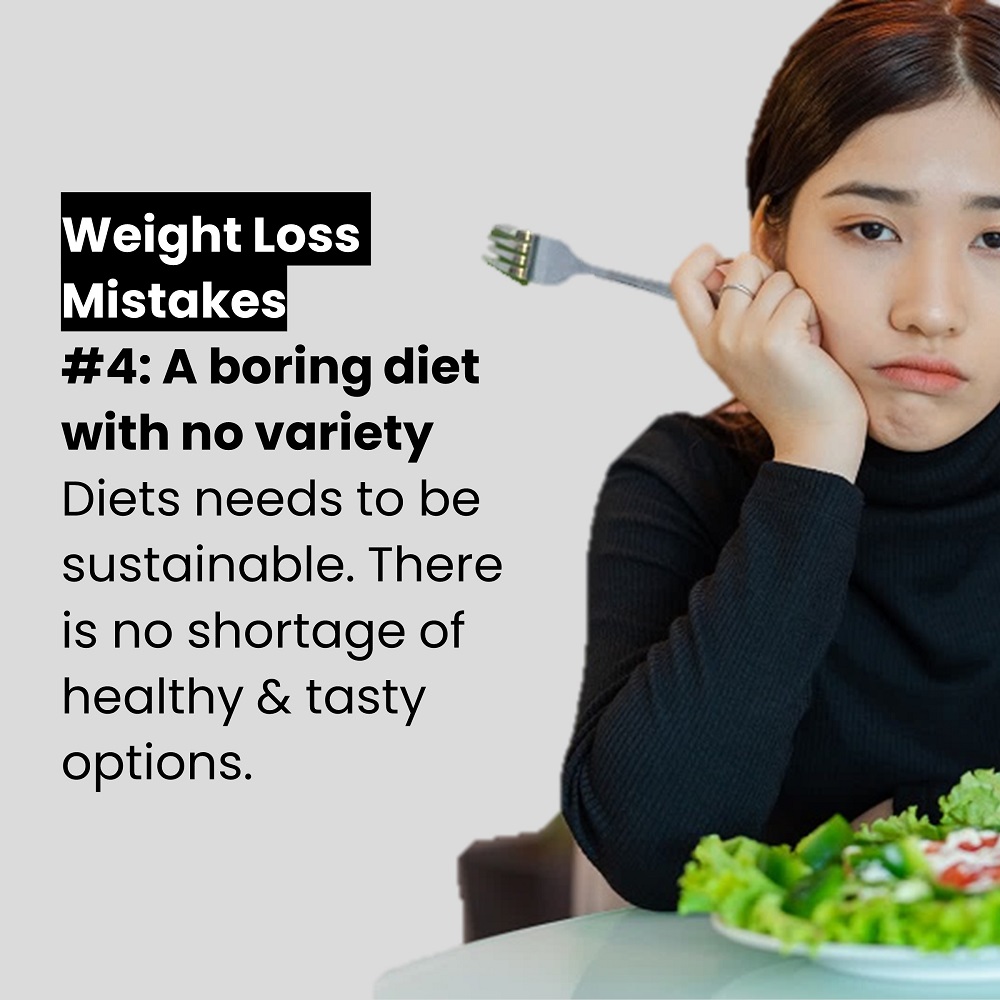
If you are going to adopt healthy eating habits, they need to be diverse so that you don’t get bored and quit later down the road.
There is no shortage of healthy tasty options out there. If you think that healthy food is boring, then you haven’t done your homework.
-
5. Using food replacements and supplements
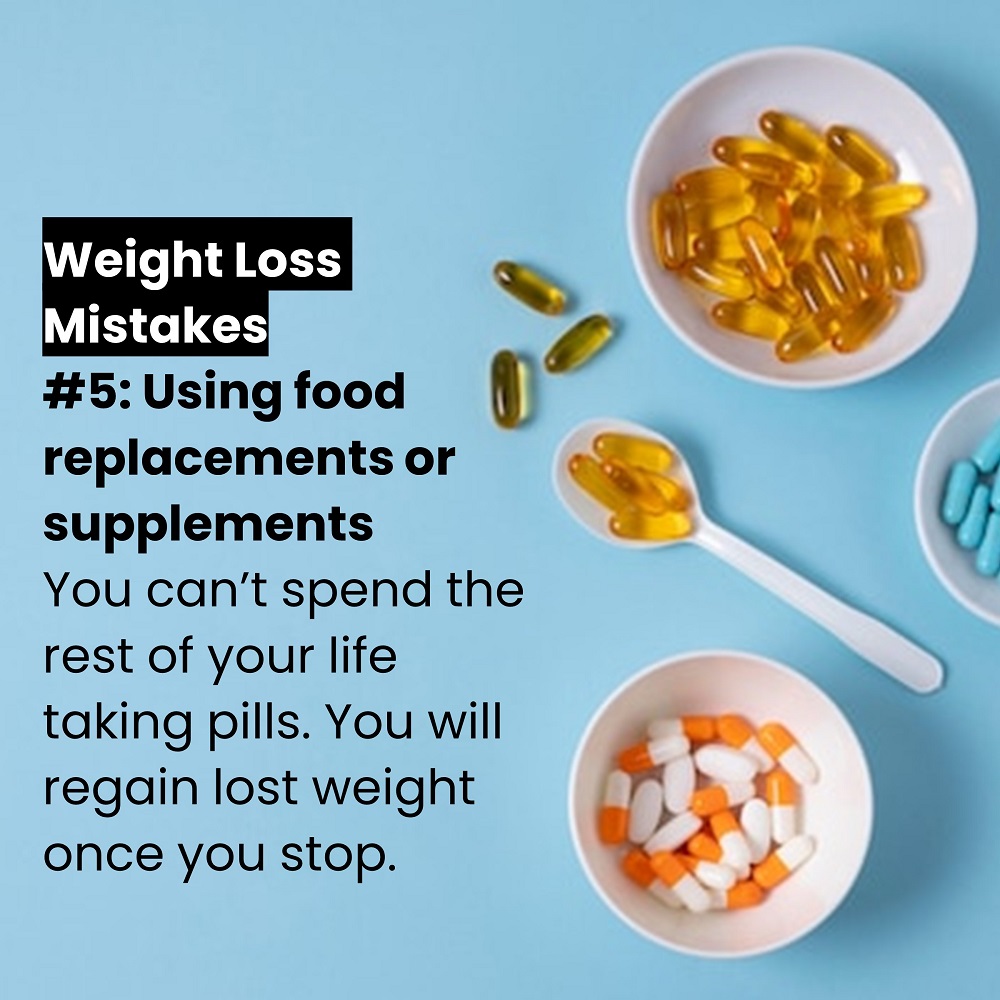
Ask yourself the following question: “What will happen when I stop using the supplements?”.
You can’t spend the rest of your life taking replacements and pills. You will regain lost weight once you stop.
Additionally, artificial food and supplements contain ingredients that cause side effects.
You can’t cheat when it comes to weight management. Eat natural food.
-
6. Not eating fat
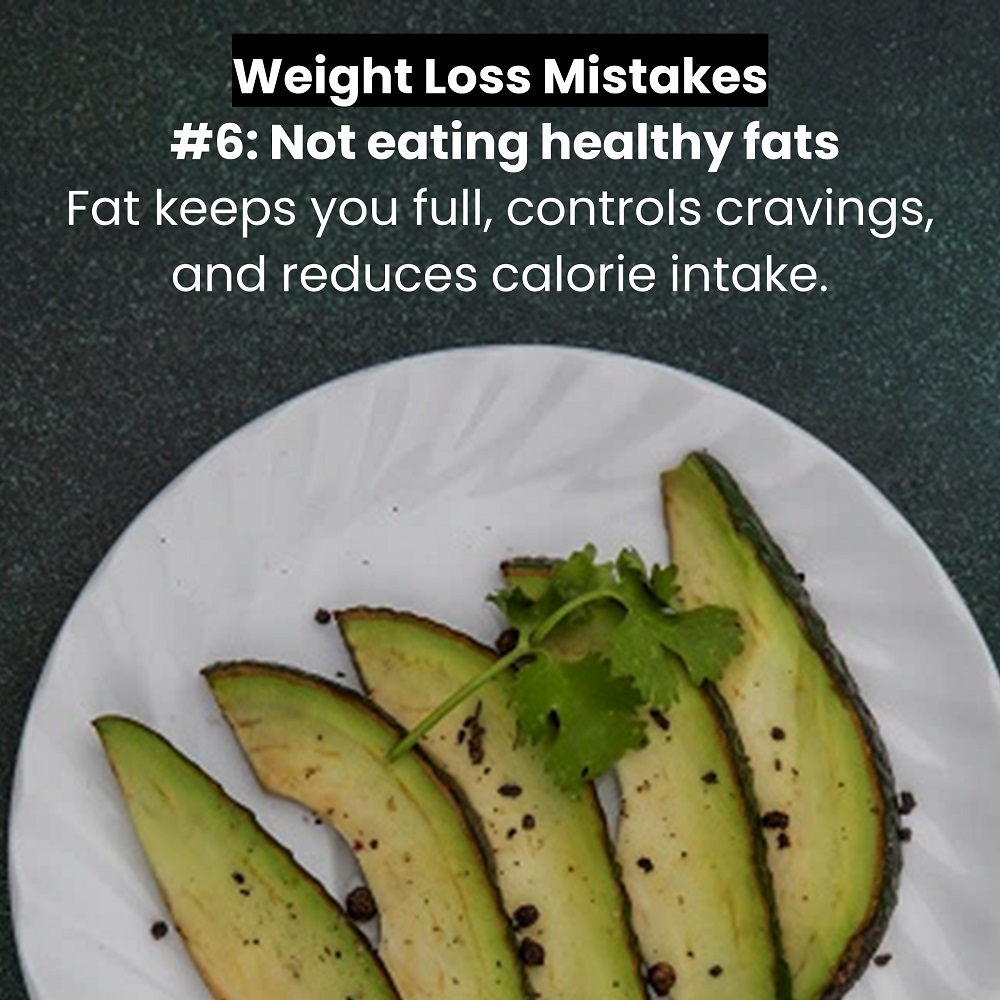
Fat has a bad reputation but not all fat is evil. As matter of fact, there is a whole diet concept based solely on eating good fat, the Keto diet.
One of the biggest misconceptions about fat in food is that it creates body fat, which is not true.
Carbs, protein, and fat can all be the cause of body fat.
Bad fat can be found in potato chips and processed food and that is the fat that you should be avoiding. Good fat can be found in olive oil and avocados for example.
The good thing about healthy fats is that they keep you feeling full for longer periods than carbs which leads to you feeling less hungry and consuming fewer calories throughout the day.
-
7. Not eating much protein
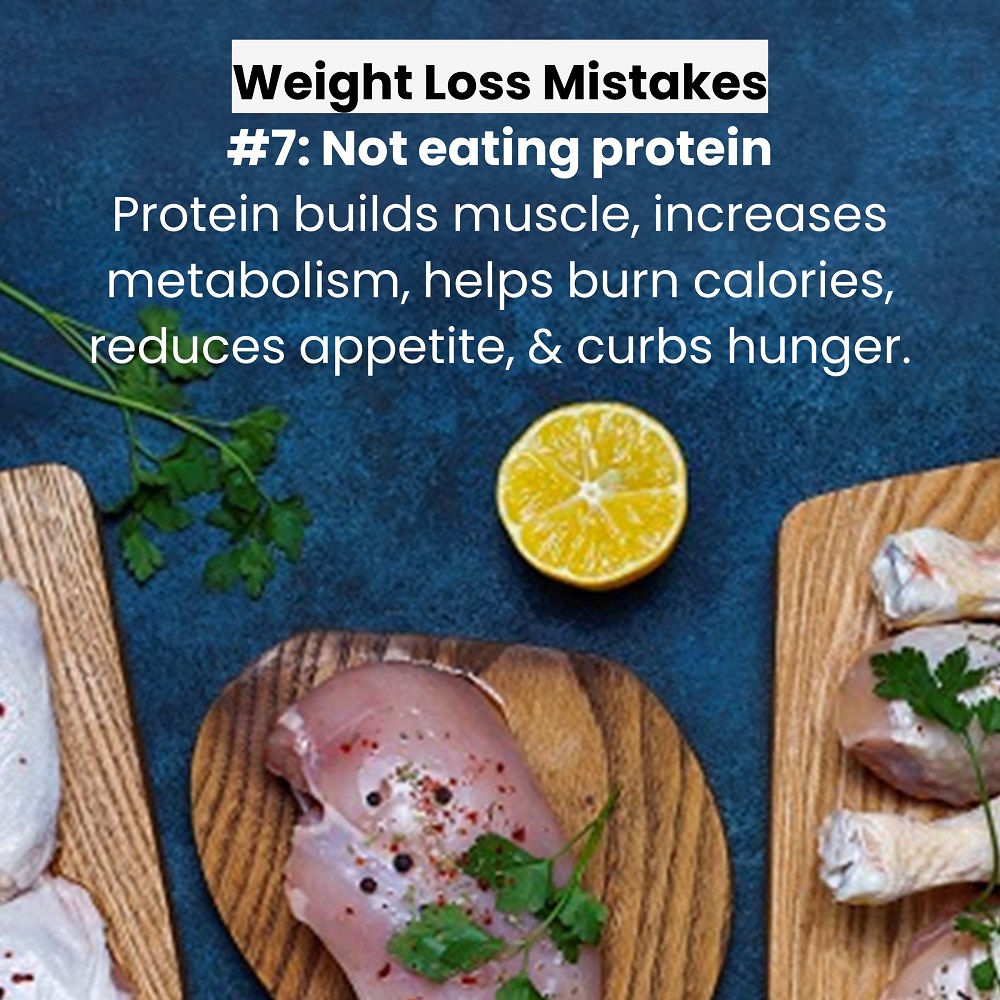
Protein is a very important component of any healthy diet.
Protein builds muscle, which increases your metabolism and helps you burn more calories.
Protein reduces appetite and curbs your hunger for longer.
-
8. Not eating enough fiber
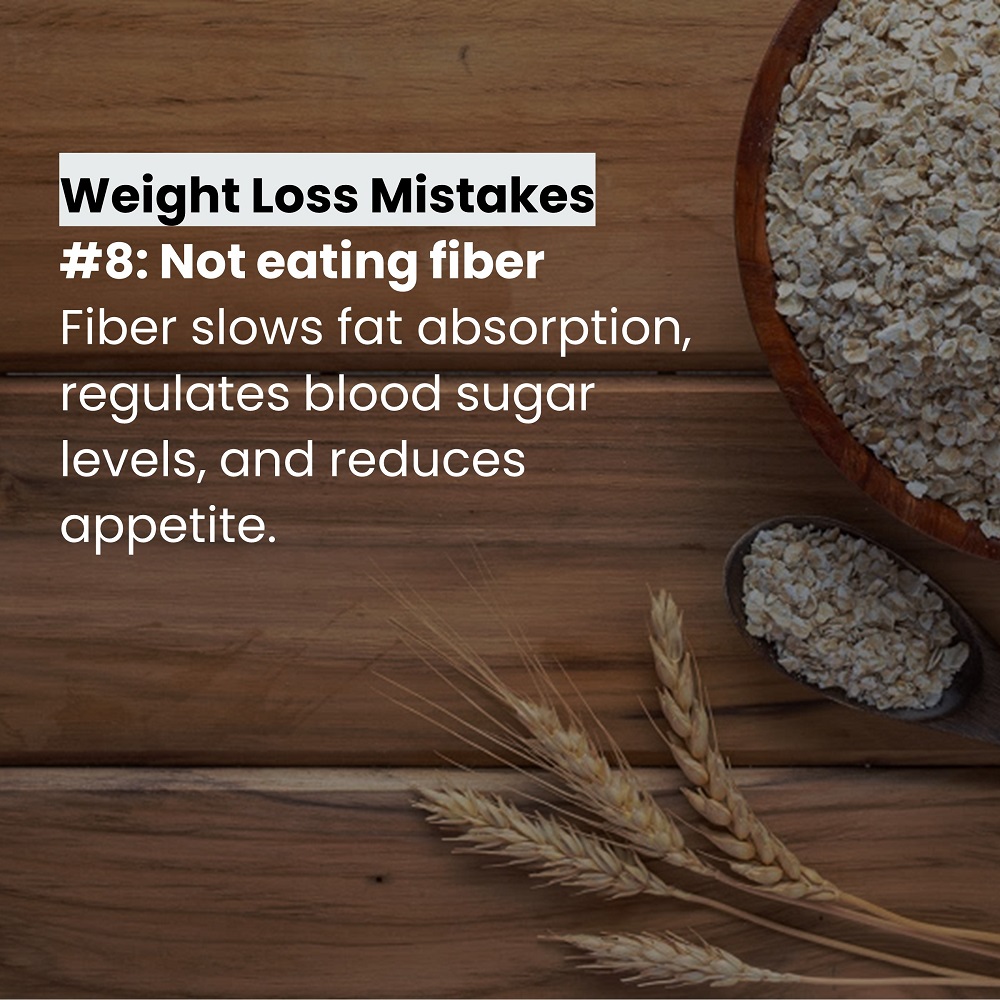
Fiber slows fat absorption and regulates blood sugar levels.
Additionally, eating fiber helps to reduce appetite and curb hunger which leads to eating and consuming fewer calories overall.
-
9. Not reading food labels
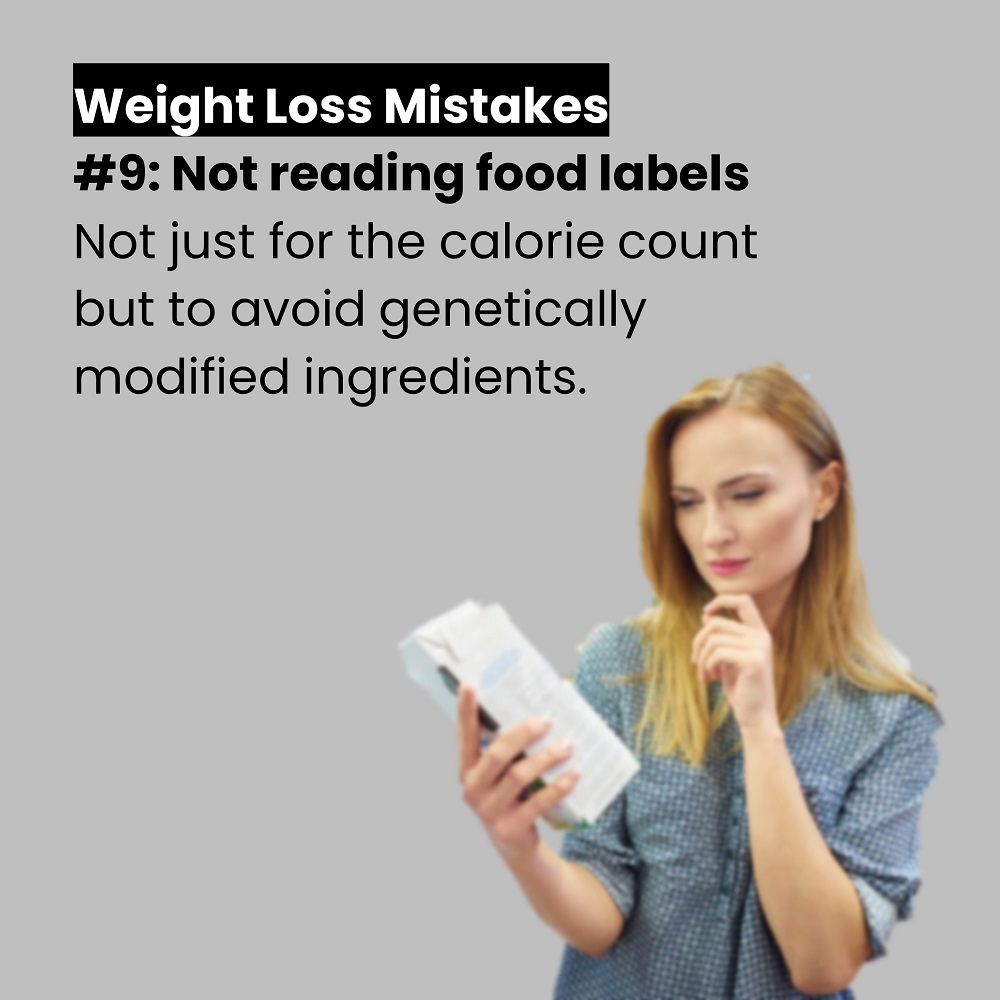
You need to develop the habit of reading the labels on the food you buy.
If you don’t then you won’t know the difference between different products.
-
10. Choosing fat-free food
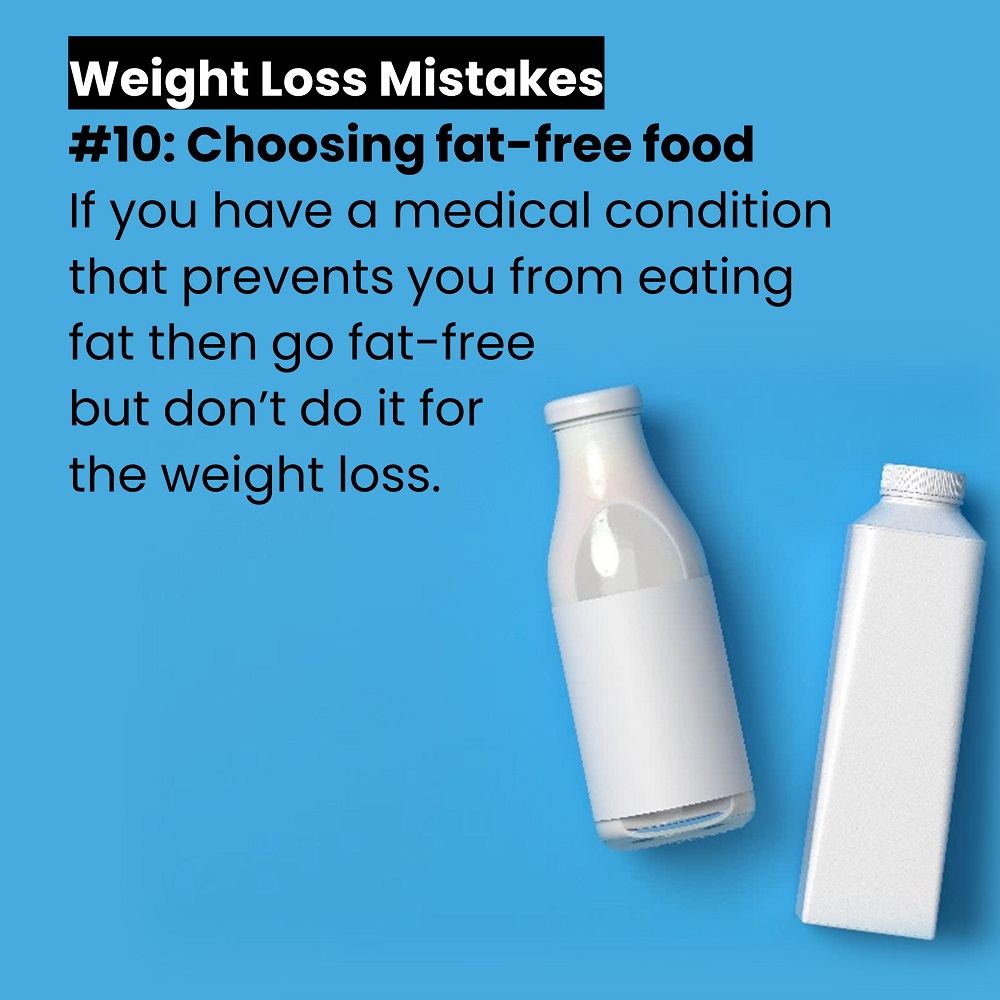
As explained earlier, fat by itself does not cause weight gain or body fat.
If you have a medical condition that prevents you from eating fat then go fat-free but don’t do it for the weight loss.
Healthy fats in food can actually help you lose weight.
The main problem with fat-free food is that manufacturers usually compensate for fat with sugar, which leads to a higher calorie intake and to feeling hungry more often.
Read food labels very well to better understand what is getting into your body.
-
11. Too much junk food
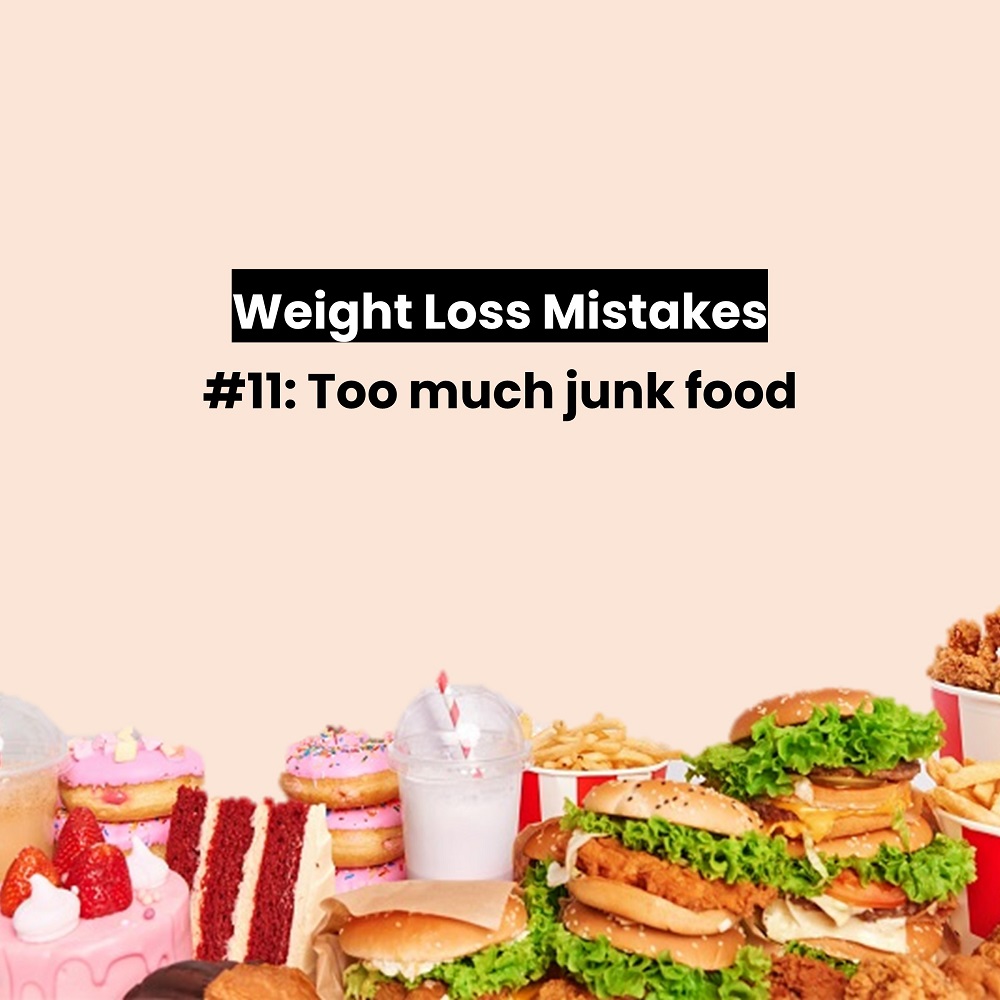
This goes without explanation. Most junk food is just, junk. They have little nutritious value and contain a ton of ingredients that will increase your weight among other health-related issues.
-
12. Poor or irregular meal timings
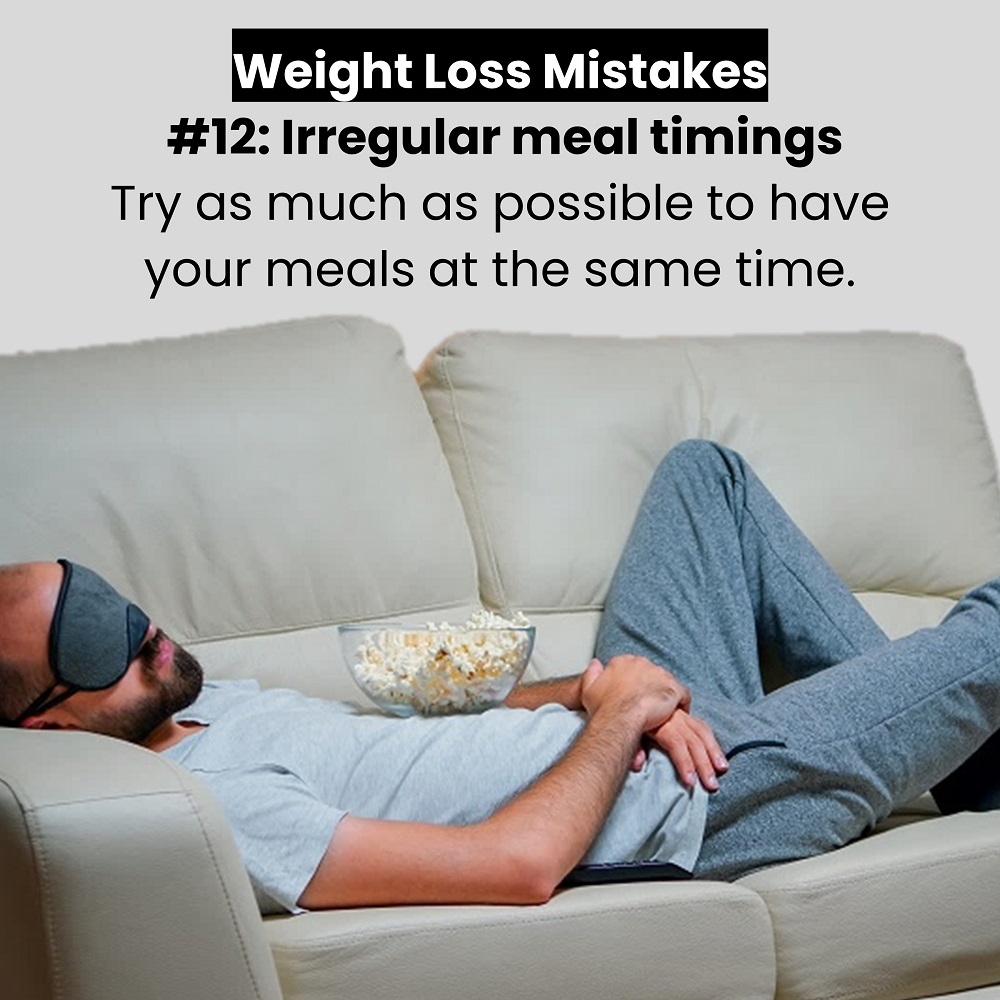
Eating the right food is not enough, timing is also very important.
Make sure to have your meals always at the same time.
In the morning our bodies are most efficient at burning fat, so you may want to have a nice filling healthy breakfast.
Skipping breakfast may seem like a simple way to cut calories, but it can actually make you hungry for the rest of the day and lead to the consumption of more calories overall.
-
13. Having large amounts of processed diet food
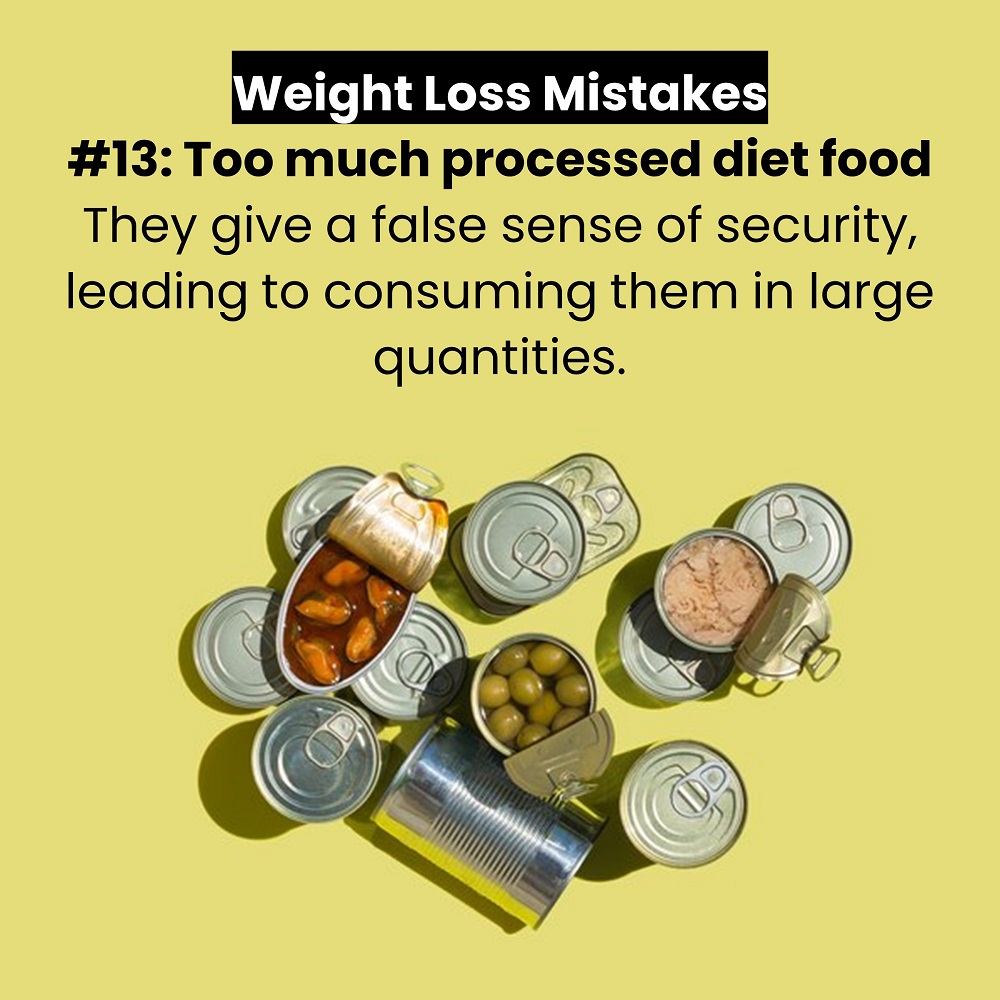
There are two issues when it comes to diet food.
First, it is processed, which is never a good thing.
Second, it gives a false sense of security, a purely phycological matter.
Previously, I would consume large amounts of low-calorie food thinking "hey, it is low-calorie, it does not matter". But by having large amounts of diet food, I would end up consuming more calories overall.
Realizing that, I stopped having large portions of sugar-free ice cream. Instead, I would just have a small portion of the real ice cream knowing that I can’t have much.
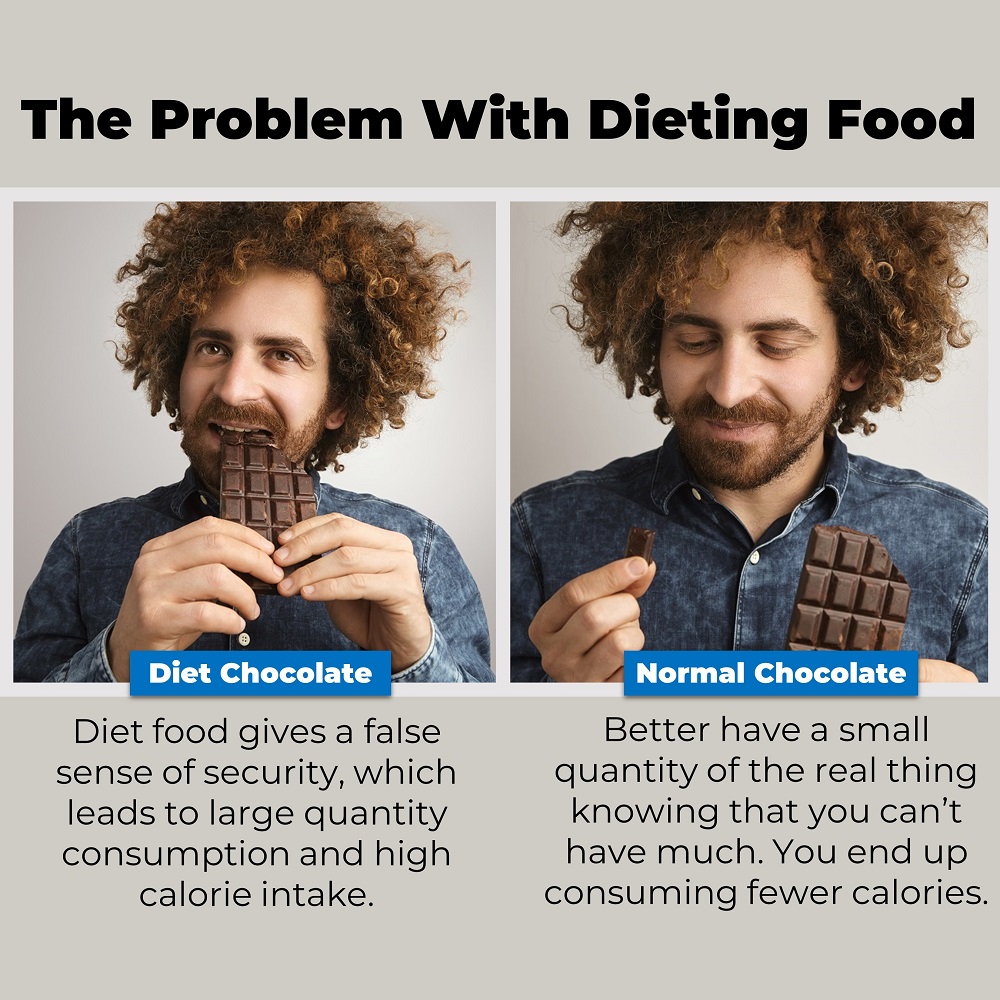
-
14. Having too much sugar
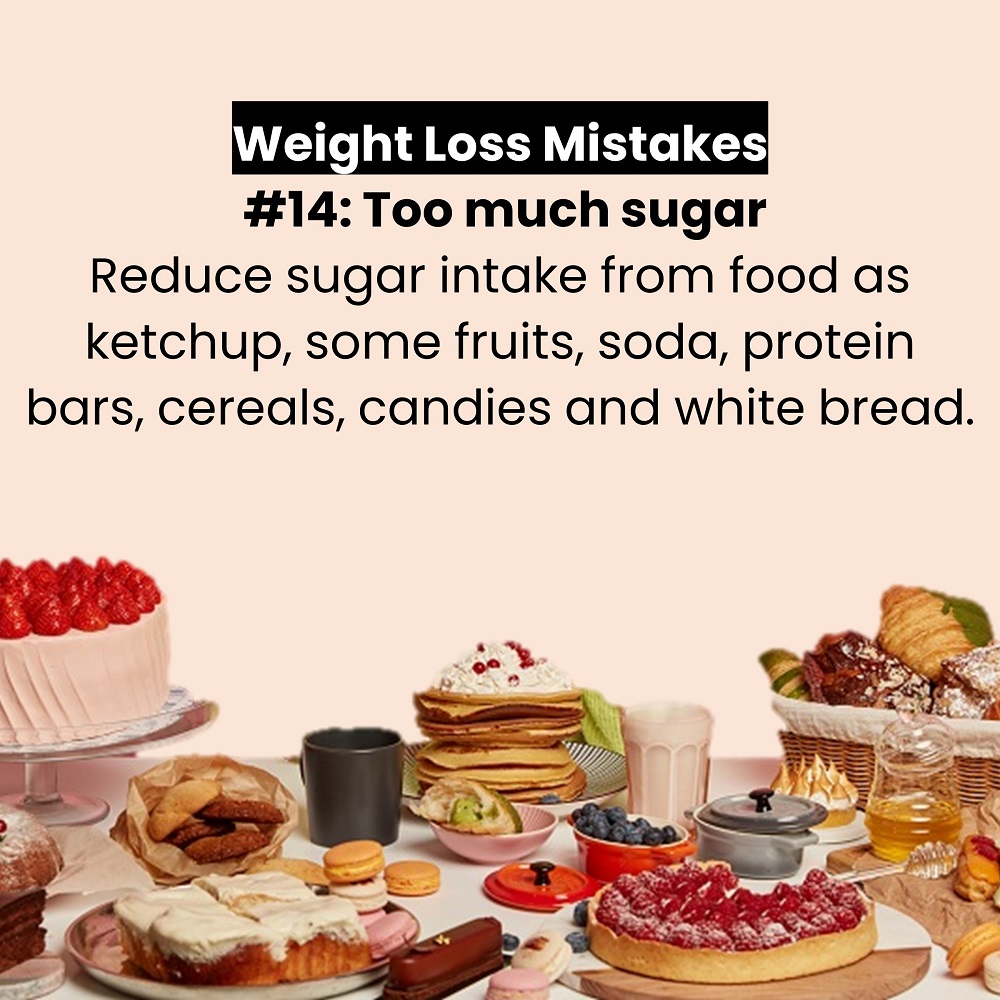
Having too much sugar is bad just in case you didn’t know already.
Reduce your sugar intake by restricting food that is high in sugar like ketchup, certain types of fruits like grapes, soda, protein bars, cereals, candies, white bread, etc.
-
15. Thinking that vegetarian equals weight loss.
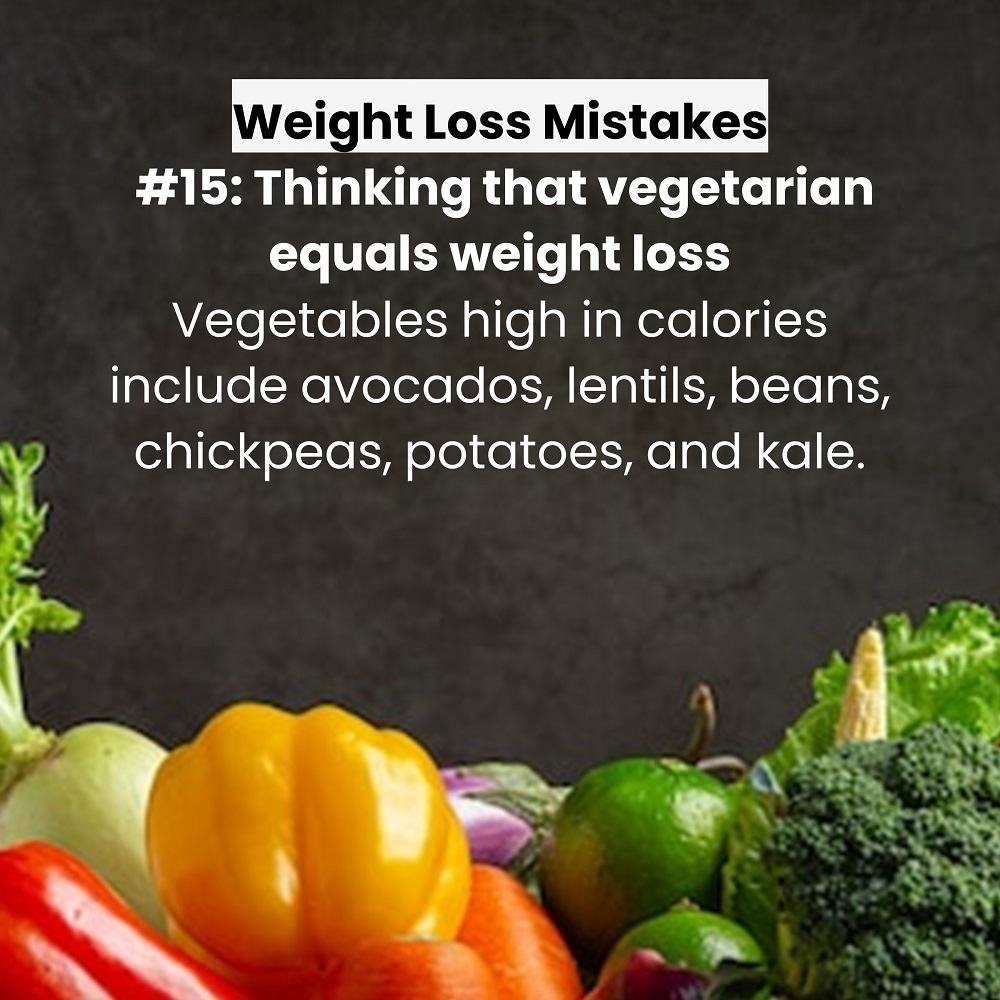
Vegetables contain calories as well, albeit low, but still there.
You just can’t have unlimited amounts of veggies and expect nothing to happen.
Vegetables that are high in calories include avocados, lentils, beans, chickpeas, potatoes, and kale. Practice caution when you want to have one of these.
-
16. Denying yourself of your favorite foods
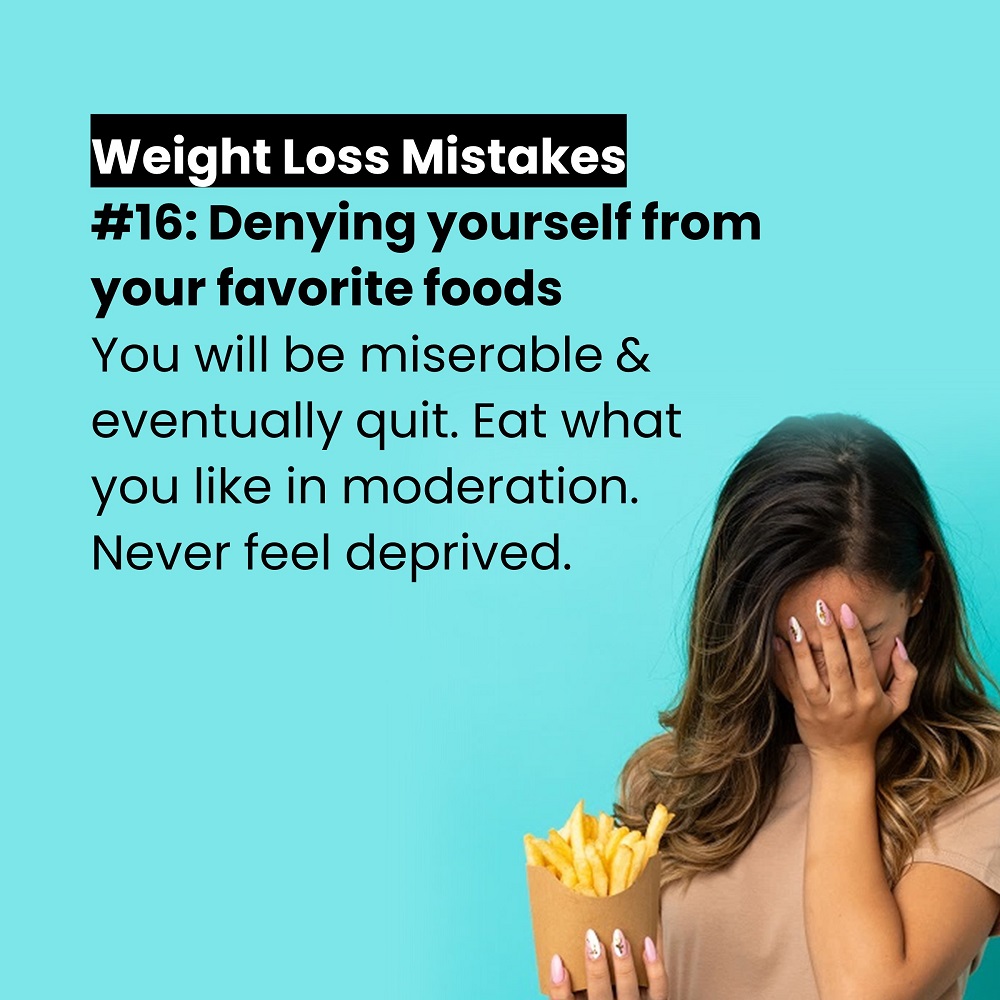
It will make you miserable and eventually lead to abandonment.
Continue eating what you like in moderation. You should never feel deprived.
When you switch to healthy options, you might discover new delicious flavors that make you fall in love with them and totally forget the unhealthy food that you once craved.
-
17. Cutting out an entire food group
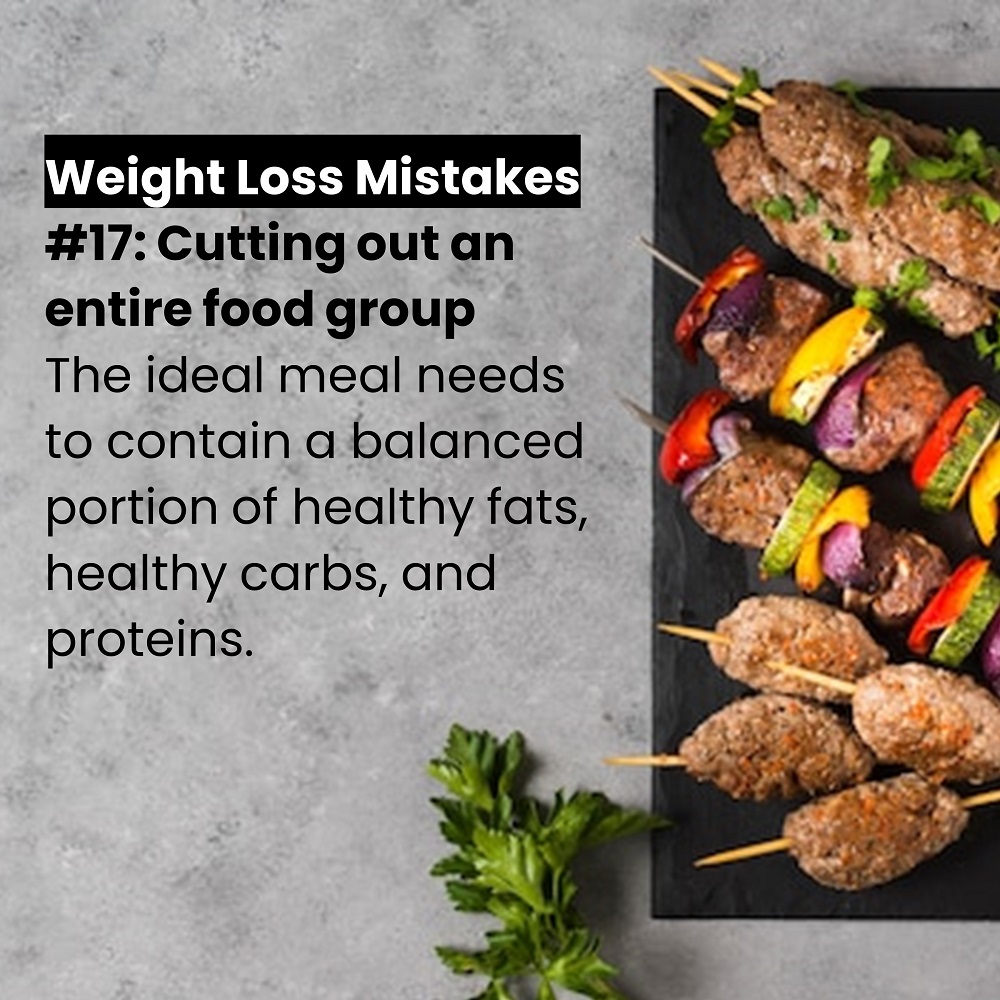
There are three major food groups (called macronutrients): carbohydrates, fat, and protein.
Each one of these three groups has good choices and bad ones. The ideal meal needs to contain a balanced portion of healthy fats, healthy carbs, and healthy proteins.
Eliminating an entire macronutrient (carbs for example) is not advisable.
-
18. Replacing meals with liquids
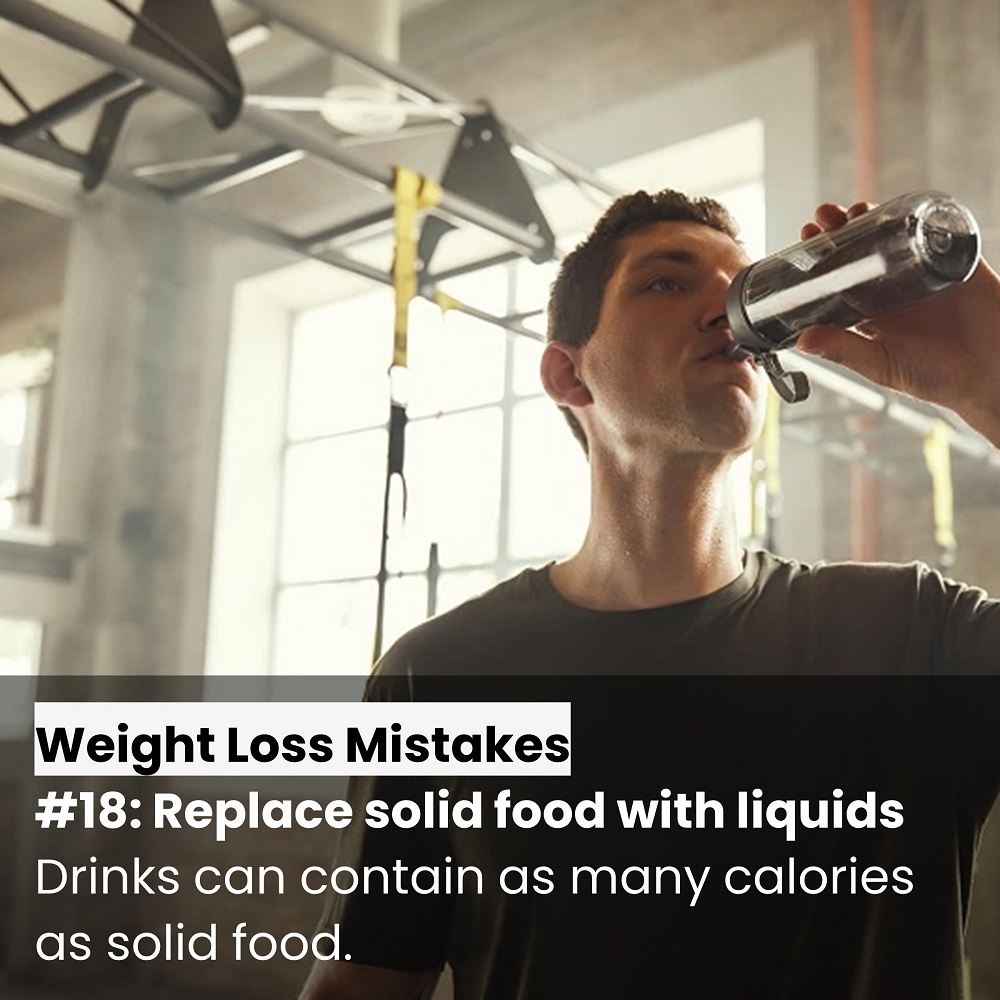
Drinks can contain as many calories as solid food minus fiber, which helps in weight management.
If you had to choose between drinking orange juice or eating an orange, always go for the whole fruit.
Any diet that prescribes liquid food at the expense of solid is questionable at best.
-
19. Large portions
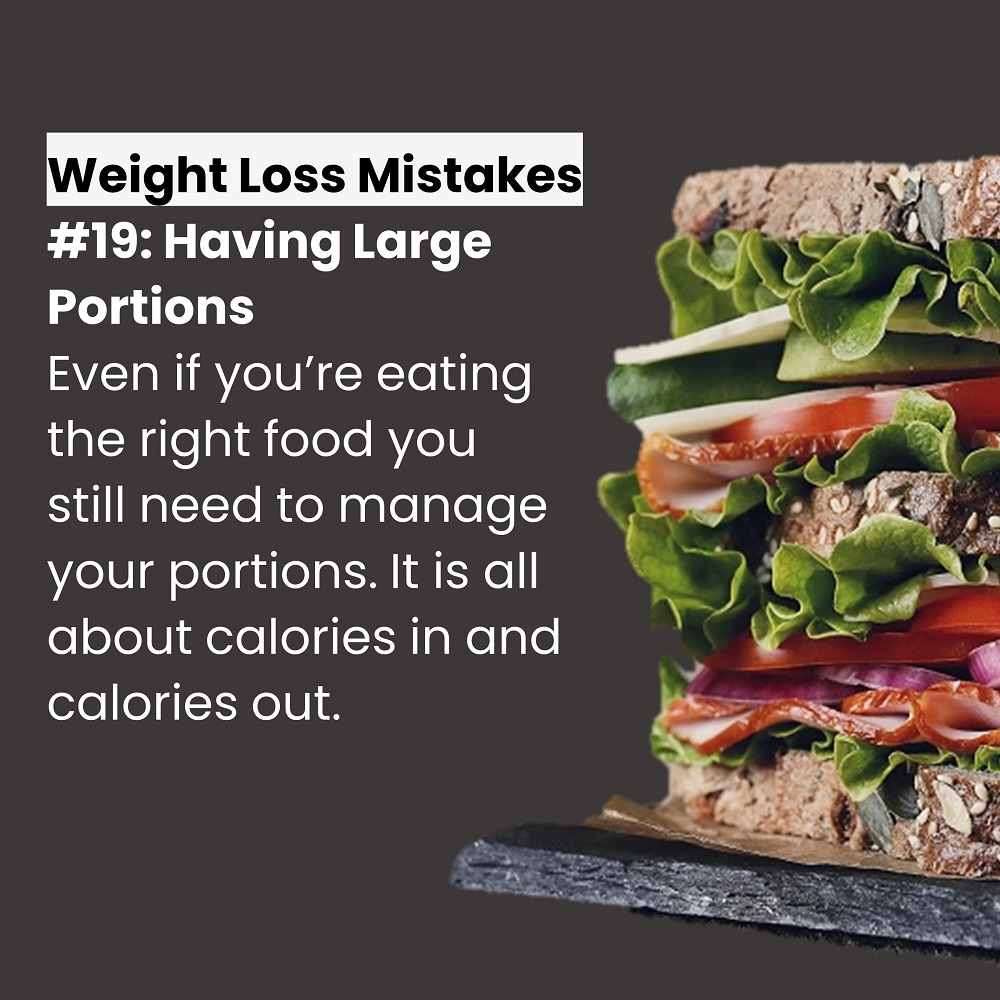
Even if you are eating the right food you still need to manage your portions. At the end of the day, it is all about calories in and calories out.
You just can’t go about and have 5 large bowls of salad for lunch, that’s like having a pizza.
-
20. Eating too fast
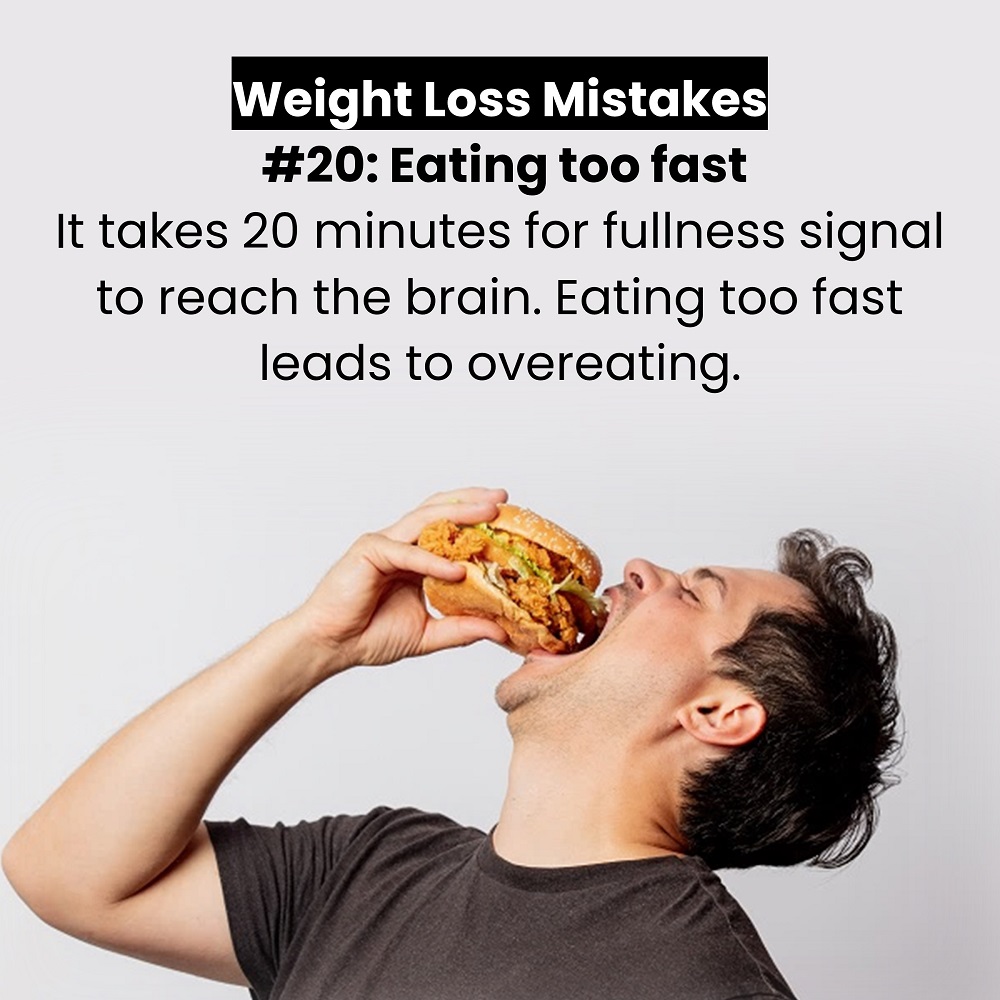
It takes around 20 minutes for the digestive system to send a fullness signal to the brain.
If you eat too fast then you are going to overeat because you are not giving your digestive system the time to send a "STOP" to your brain.
When you eat slowly, you will eat less and thus consume fewer calories.
-
21. Not having any carbs
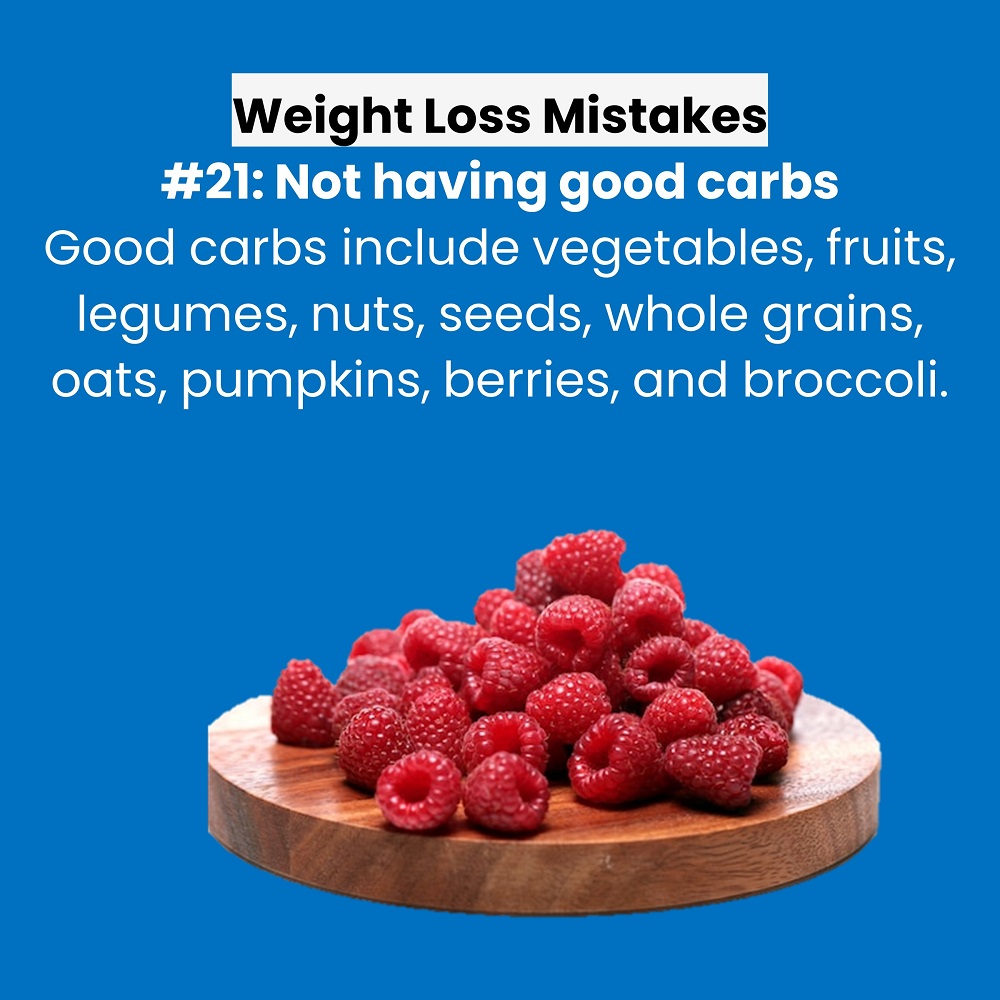
Carbs have a bad reputation but not all carbs are bad. As a matter of fact, some carbs are extremely beneficial and high in nutrients and fiber and will help you lose weight and stay fit.
Good carbs include vegetables, fruits, legumes, nuts, seeds, whole grains, oats, pumpkins, berries, broccoli, and apples.
-
22. Using an excessive amount of dressing
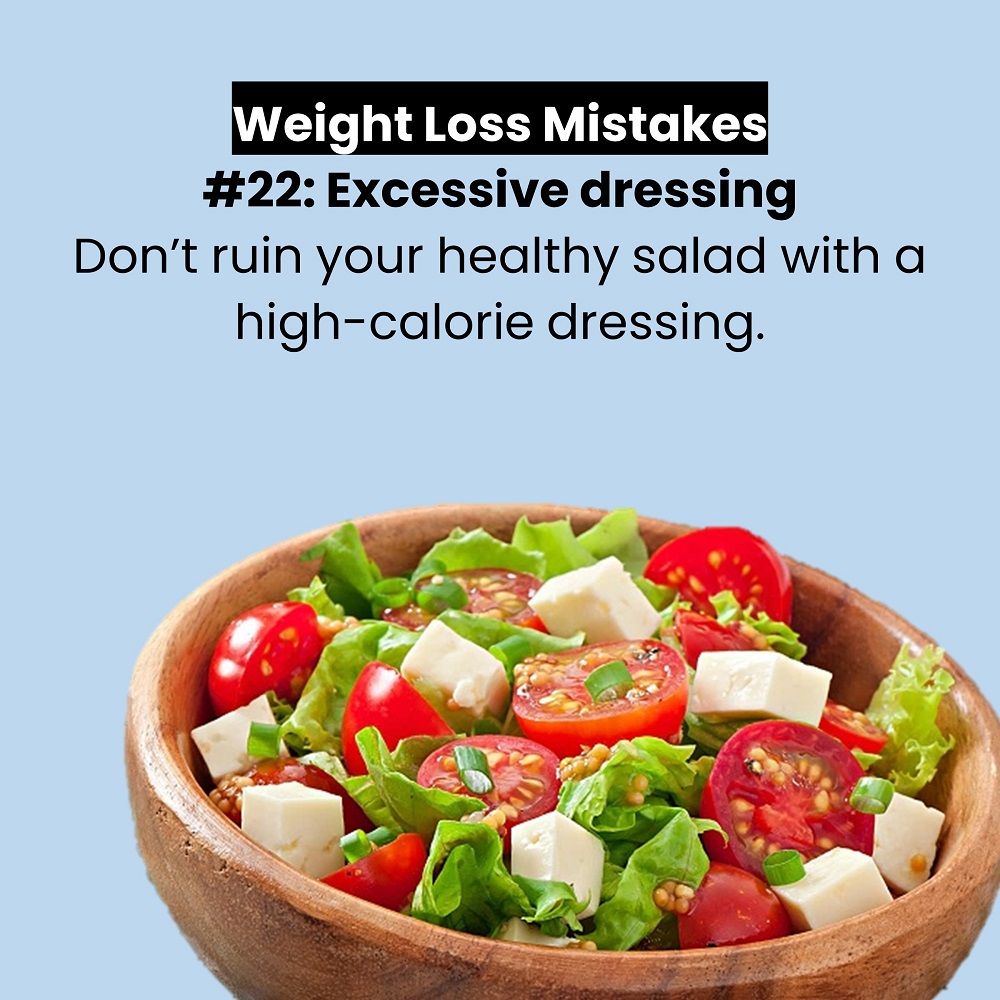
Especially on salads. Don’t ruin your healthy salad with a potentially high-calorie dressing.
Understand what dressings are made off before you drizzle your salad.
-
23. Not exercising
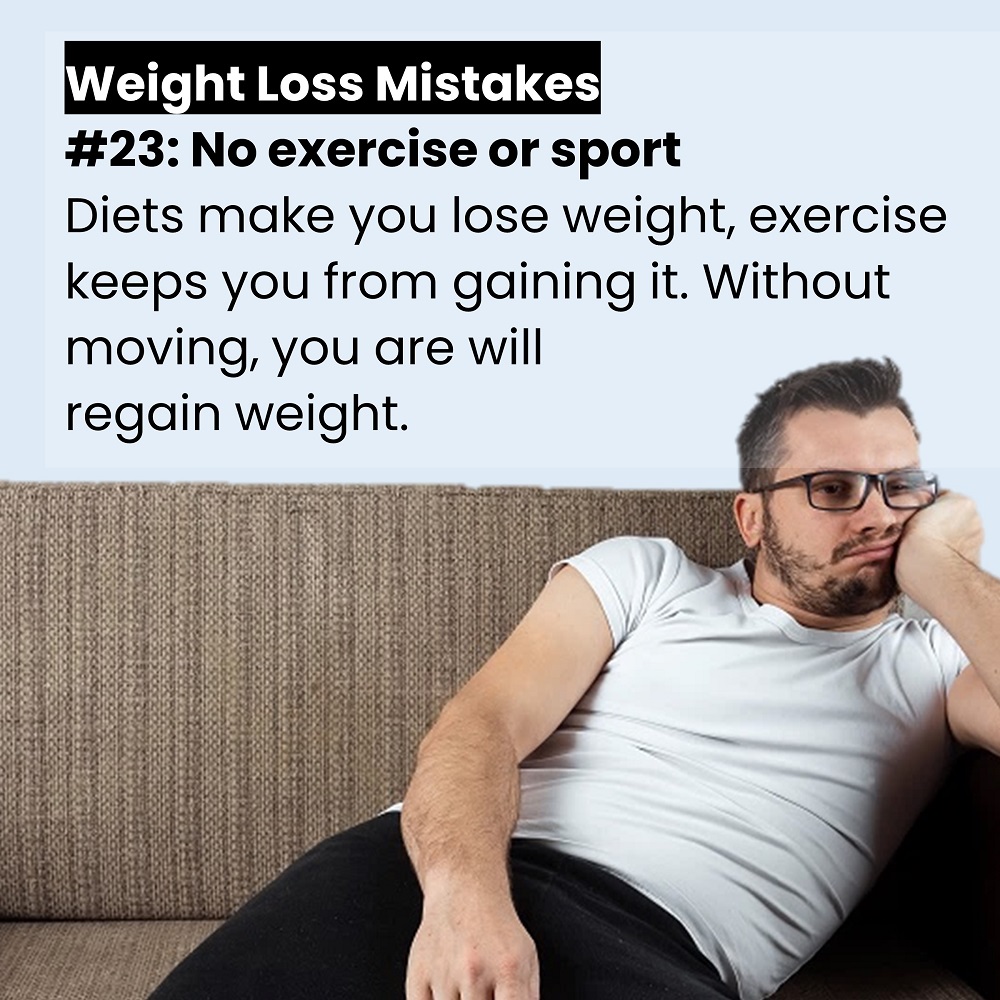
Exercising is essential to keep lost weight at bay.
You can think of it this way: diets make you lose weight while exercise keeps you from gaining weight.
This may seem obvious but is overlooked by most people.
Without exercise, you are guaranteed to gain some weight again.
-
24. Exercising too much
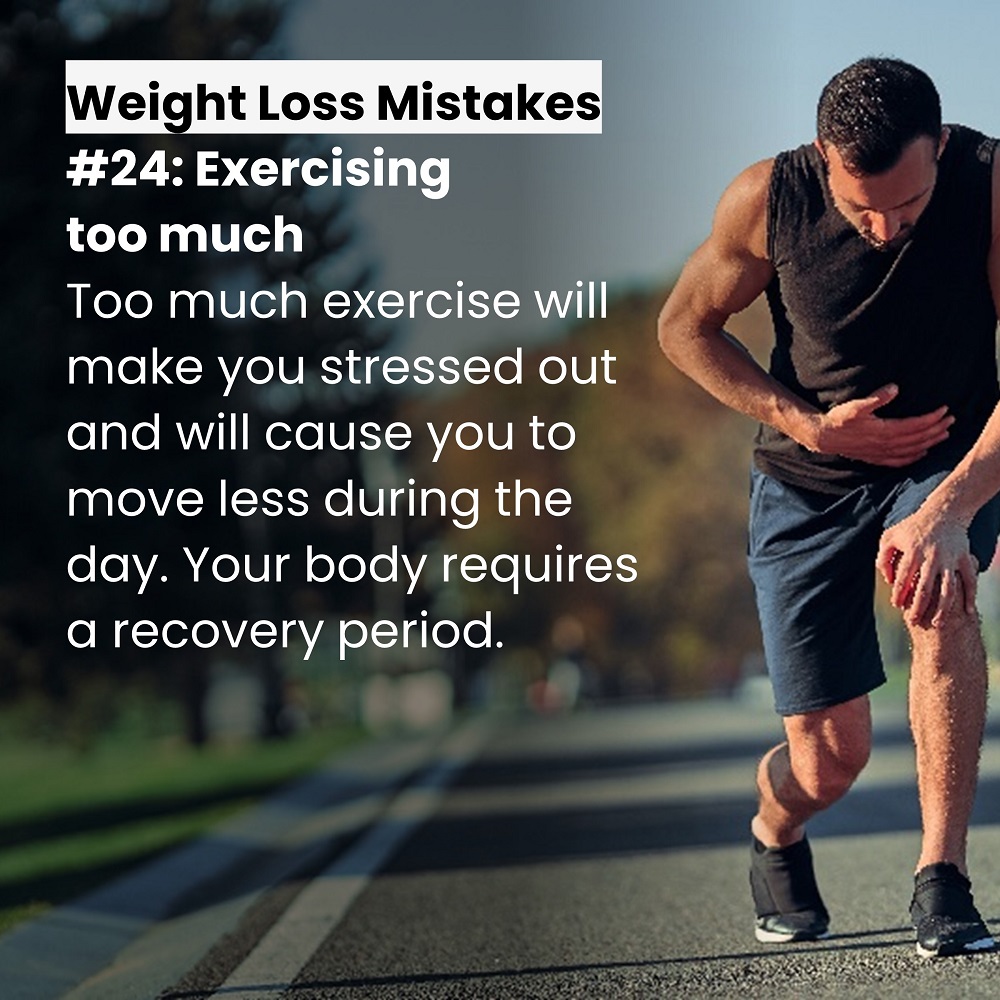
Too much exercise will make you stressed out and will cause you to move less during the day.
It is not as ideal as it appears to be.
The keyword is moderation. Observe balance even when it comes to the good stuff.
-
25. Moving too little
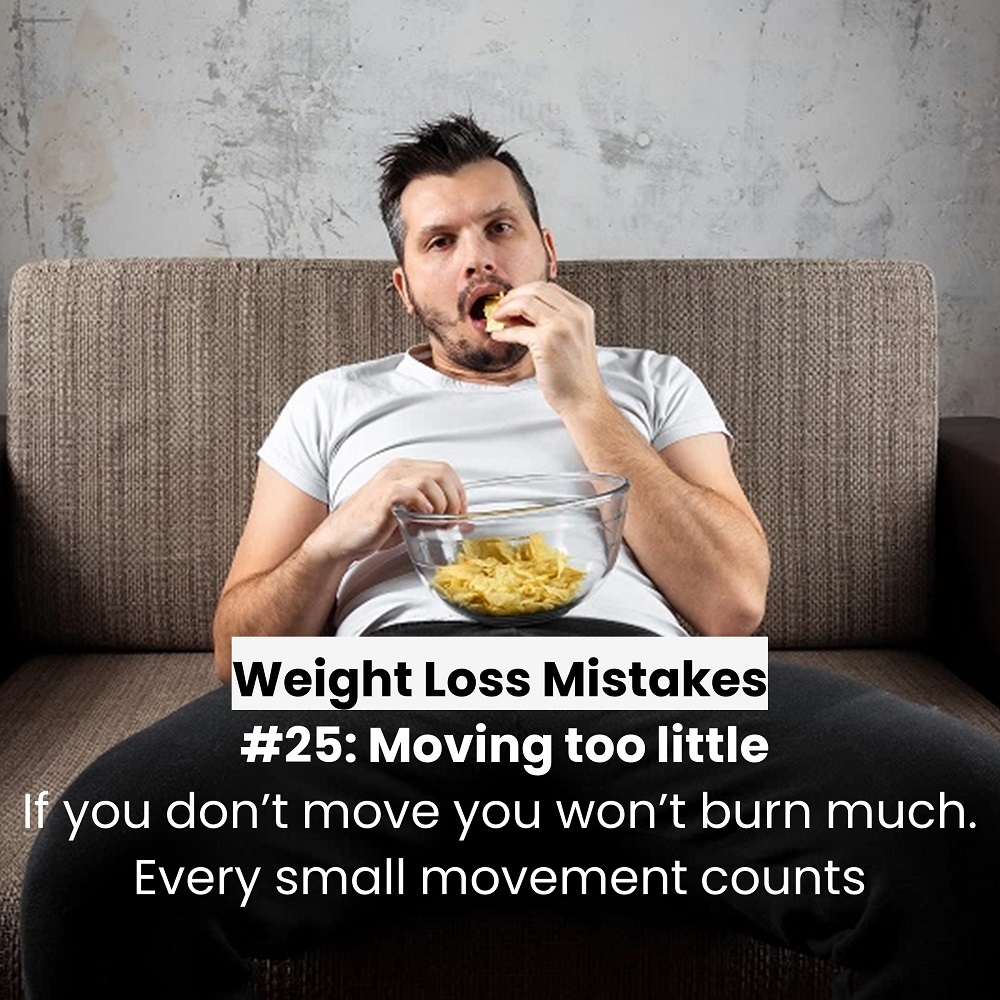
This is especially true if you restrict calories too much. An unbalanced diet will keep you tired, give you sleep troubles, and shrink your muscles, which are essential to increasing your metabolism.
If you don’t move you won’t burn much. Every small movement counts.
-
26. Thinking that exercising lets you eat anything
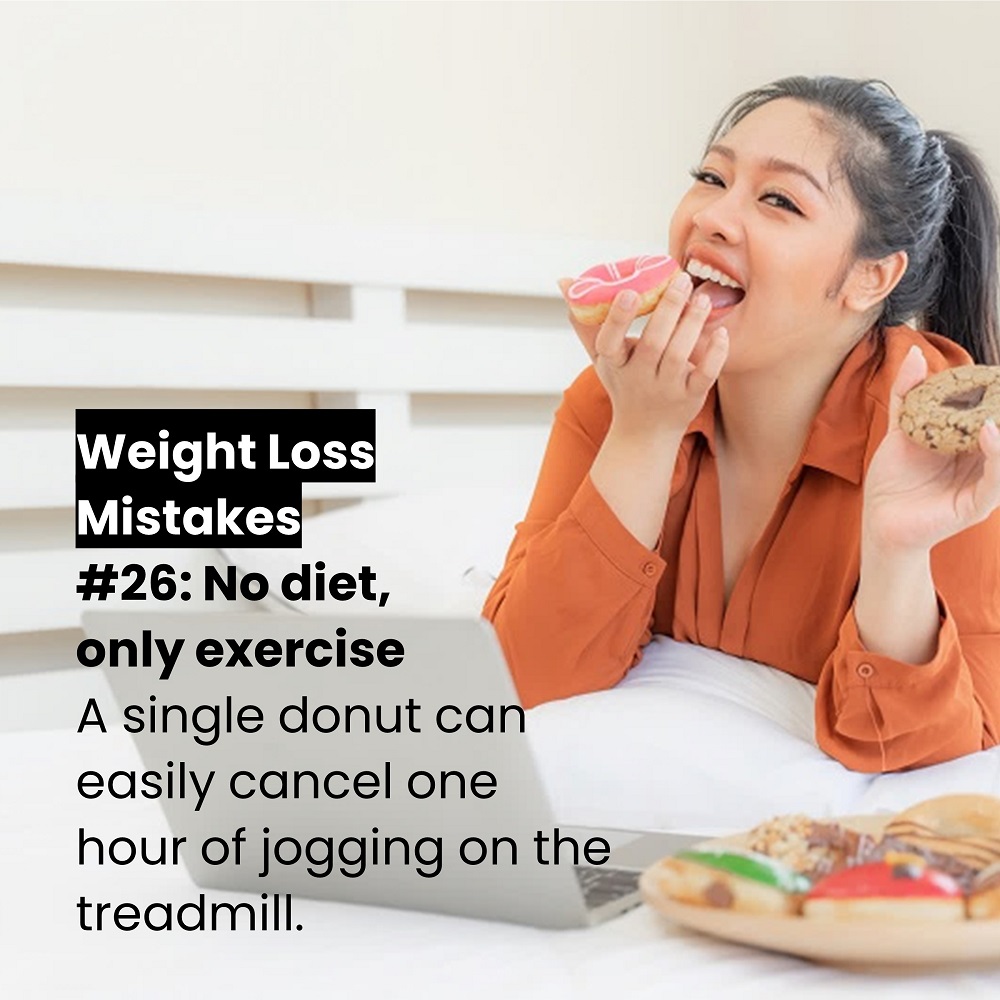
Exercise and all the movement that you do constitute just 30% of your total energy expenditure or calorie-burning on average. The remaining 70% of the energy is used just to keep your body functioning and to digest food.
That means that you only control 30% of your energy expenditure, the remaining 70% are out of your control.
This is one of the reasons why exercise alone is not enough to lose fat.
-
27. Doing the same exercise every day
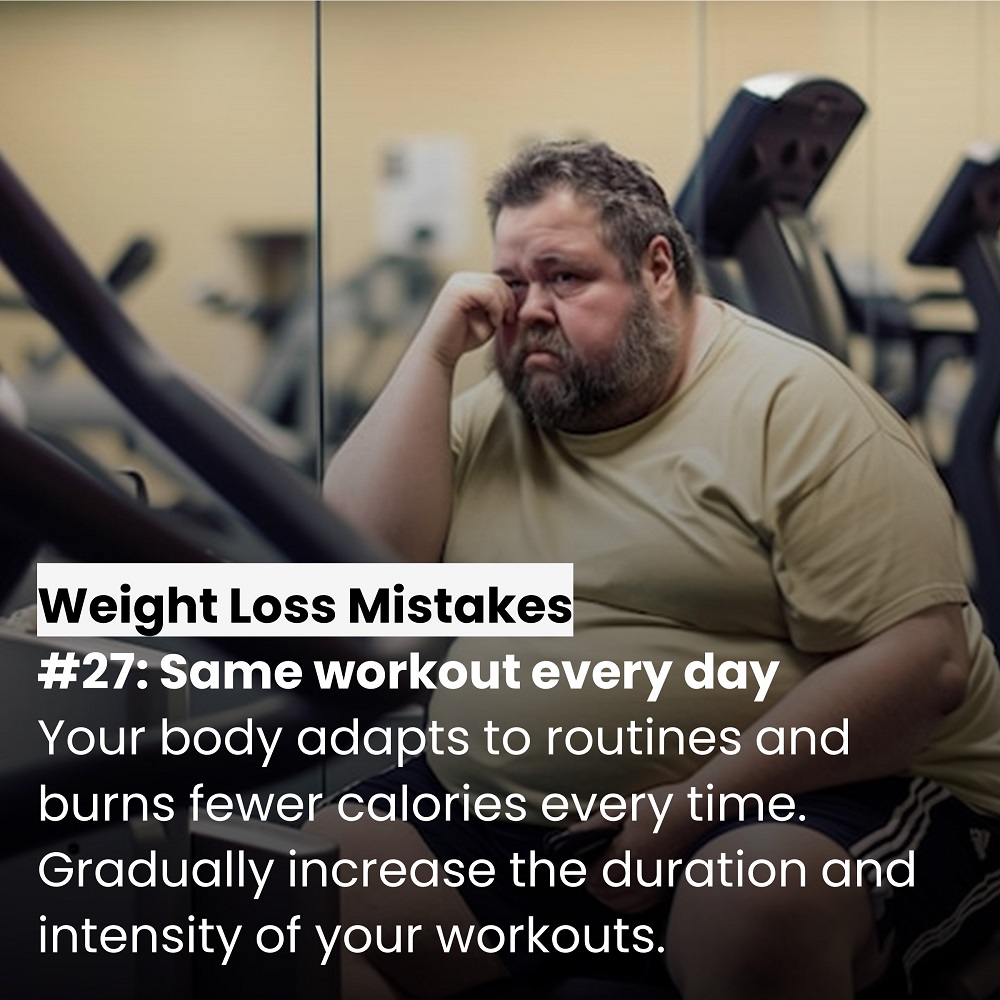
Do you want to know why walking on the treadmill for 30 minutes every day is almost useless?
The reason is that your body is smart and it is always looking for ways to conserve energy and to be efficient.
This is not a bad thing in principle but it does not help you in your weight loss journey.
When you do the same exercise every day, your body adapts to the routine and slowly learns how to consume as little energy as possible to complete the same workout.
The first week you may burn 800 calories in a session when you walk on the treadmill. The week after that 700. The week that follows 600, until you reach a point when you are not burning more than 200 calories.
So what is the solution?
Have variety in your training. You can introduce variety in two ways: increase the duration (workout for longer – not so effective) or increase the intensity (run faster – the better way).
-
28. No resistance training
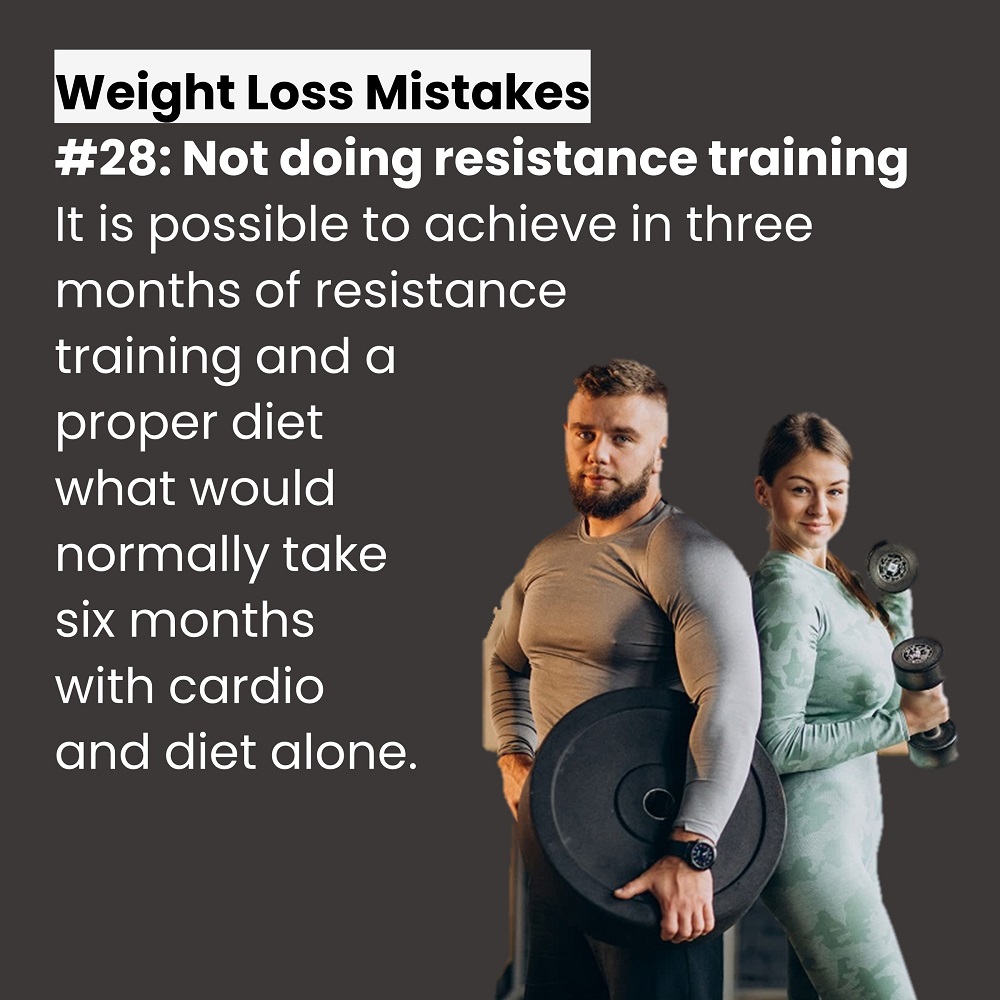
Resistance training (weightlifting or calisthenics) stimulates muscle growth which will increase your metabolism and calorie burning.
It is for both men and women.
If you want to fast-forward your results and maintain them for a very long time, resistance training is your best option.
It is very possible to achieve in three months of resistance training and a proper diet what would normally take six months with cardio and diet alone.
-
29. Not refueling after workouts
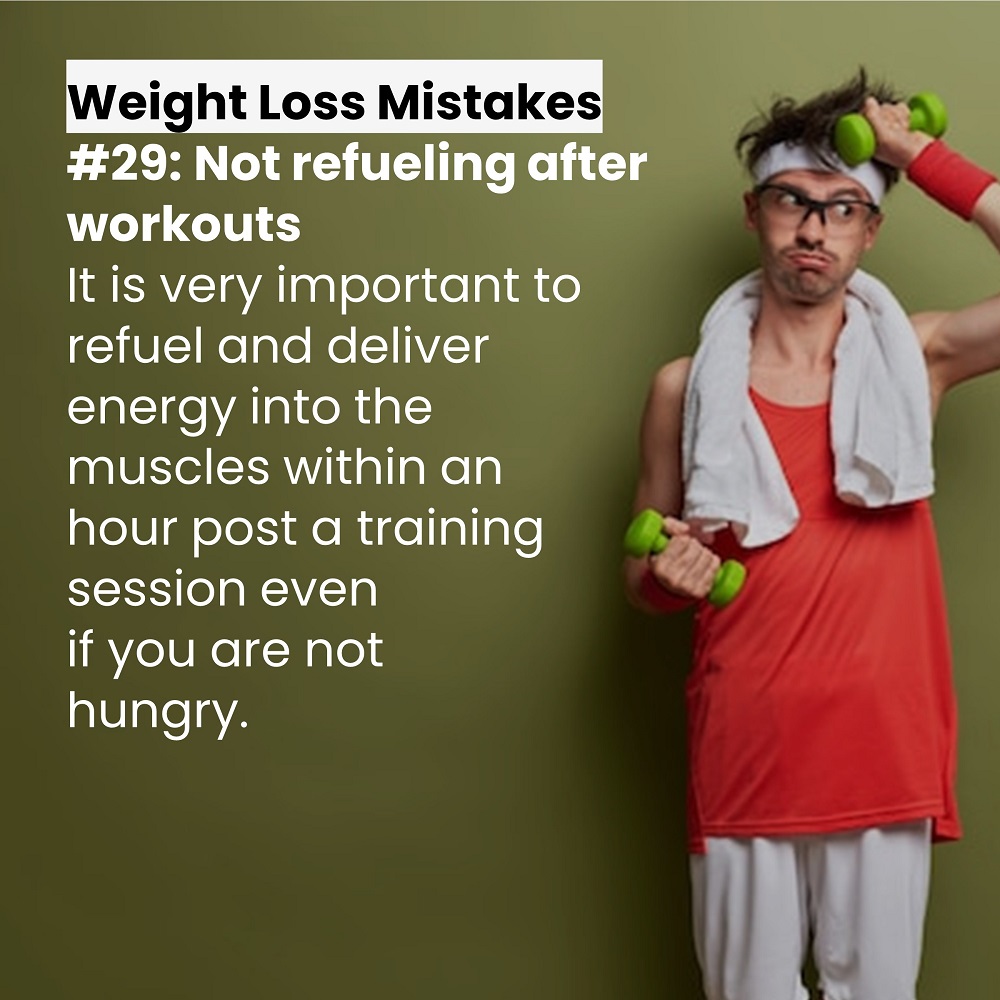
Most people avoid eating anything for several hours after their workout sessions with the impression that consuming any food will ruin their efforts.
It is very important to refuel and deliver energy into the muscles within an hour post a training session even if you are not hungry.
-
30. Not sleeping well
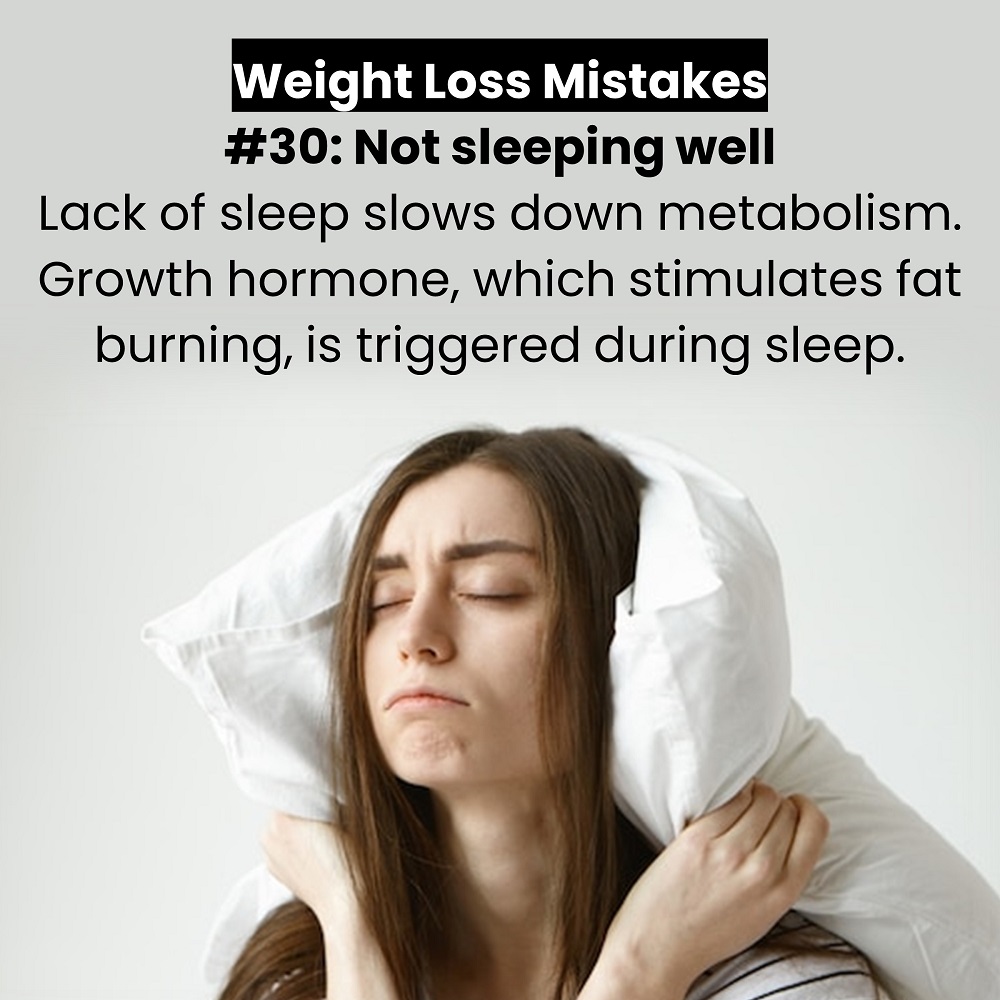
Sleeping well is essential for good health in general and for being fit in particular. Not having enough sleep is a big mistake when you are trying to lose weight.
Lack of sleep slows down your metabolism. Growth hormone is triggered while you are sleeping and that is the primary hormone that stimulates fat burning.
-
31. Too Much Stress
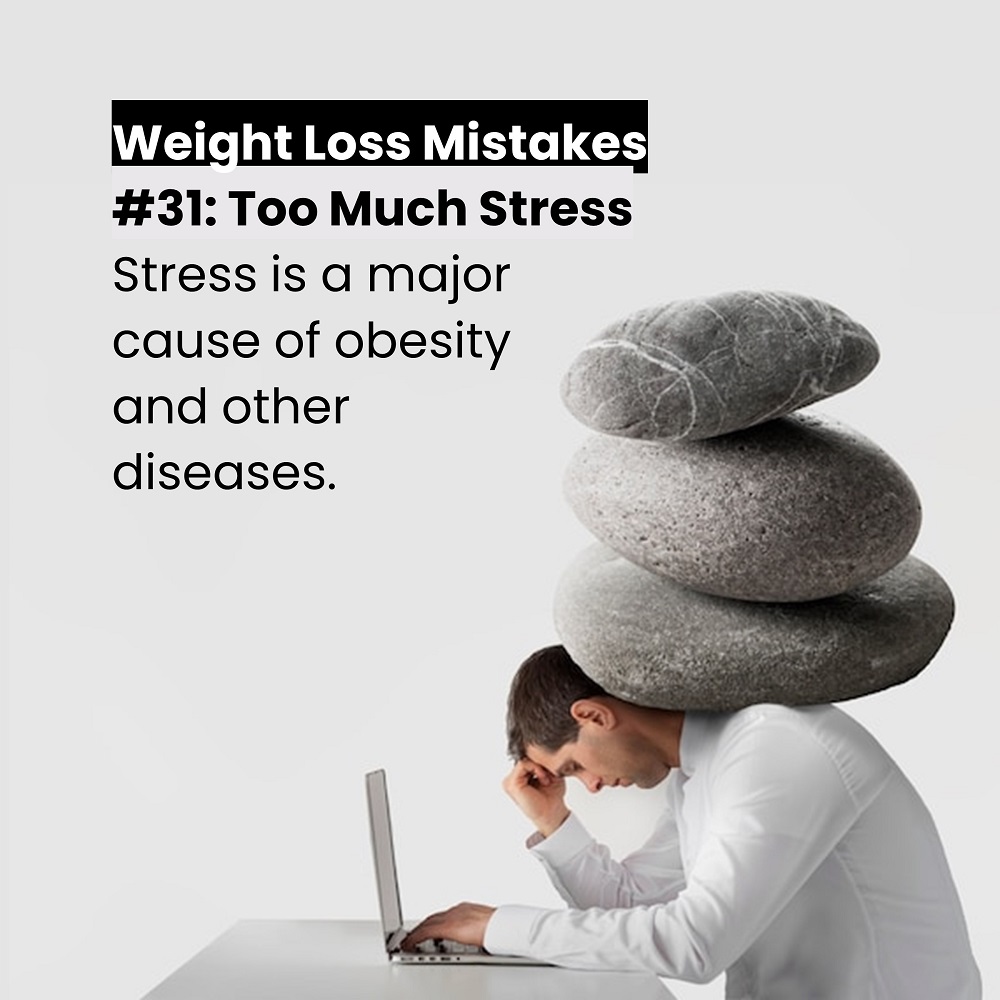
Stress is a serious cause of weight loss and other chronic diseases. Getting rid of stress is easier said than done.
We are all surrounded by stress that is sometimes unavoidable. However, you can remove a considerable amount of unnecessary stress from your life fairly easily.
-
32. You Don’t Monitor Your Results
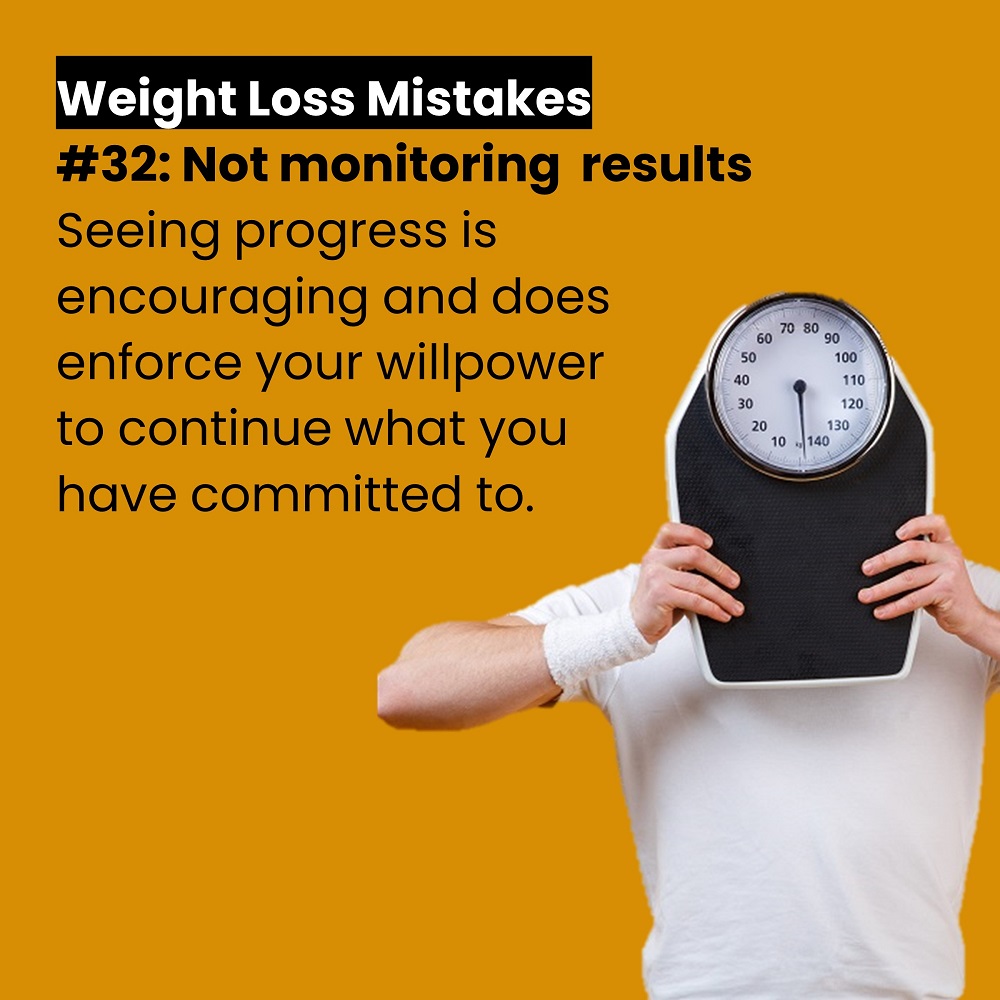
Weight monitoring is important to measure your progress and know whether your efforts are paying off or not. Weigh yourself once a week on the same day and time for an accurate perspective.
Knowing that you have made progress is encouraging and does enforce your willpower to continue what you have committed to.
-
33. Weighing yourself too often
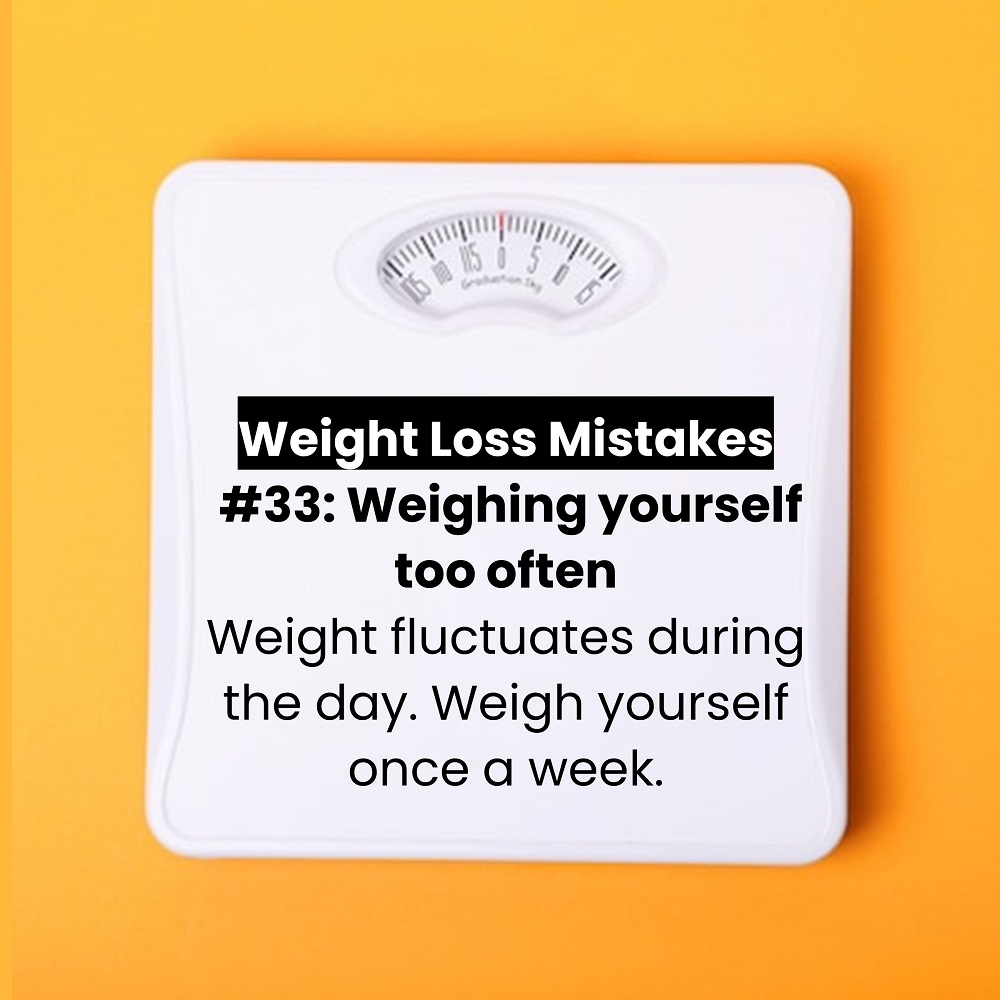
This is a common mistake especially when you are starting off. It is really pointless to measure yourself several times a day.
Your weight fluctuates in short periods of time and the results will not reflect the reality of what is happening. Once a week is more than enough.
-
34. Focusing only on the scale weight
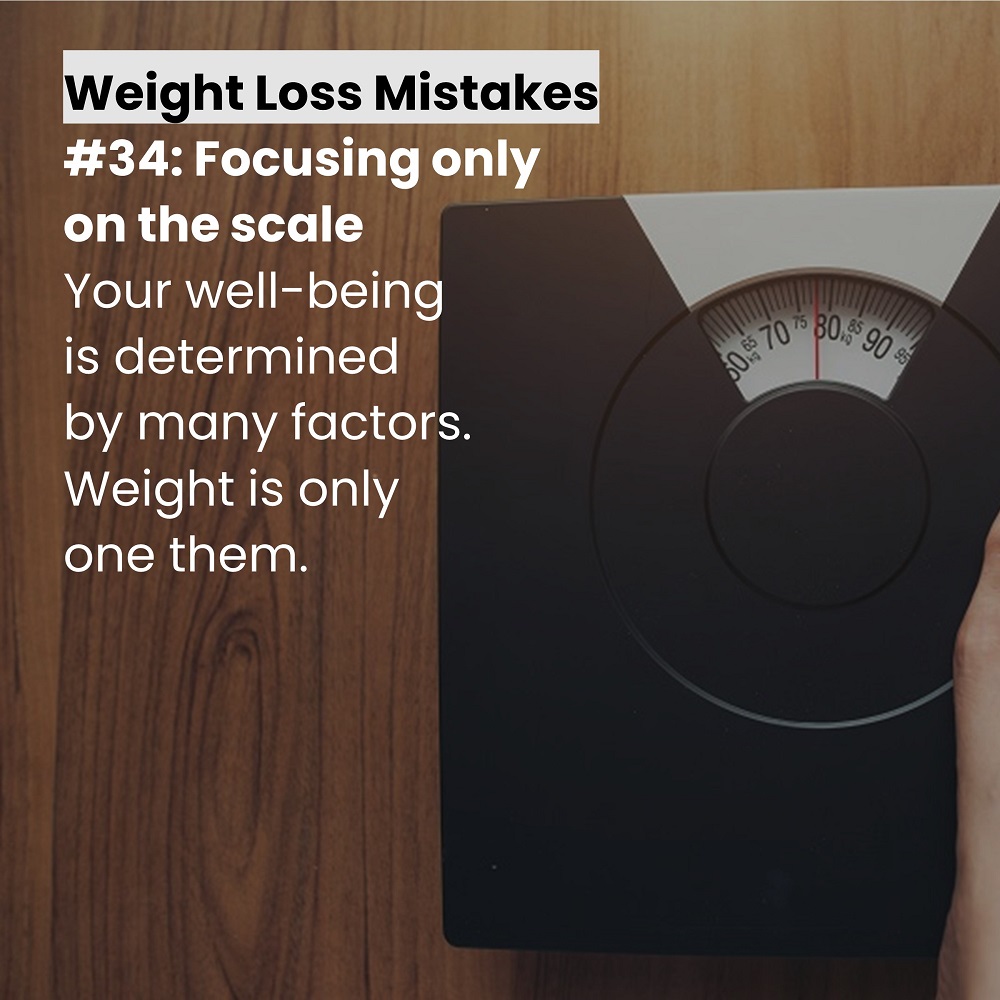
There is an exaggerated emphasis on weight being the sole indicator of well-being in the media and in society in general that other important factors are subconsciously ignored.
While being excessively overweight is a bad sign, a slight increase in weight does not necessarily mean that you are not healthy.
A more accurate indicator of well-being is fat percentage.
You can be skinny as a skeleton and have severe health issues or be in a heavy muscular body shape and still be perfectly fine.
-
35. Having unrealistic expectations
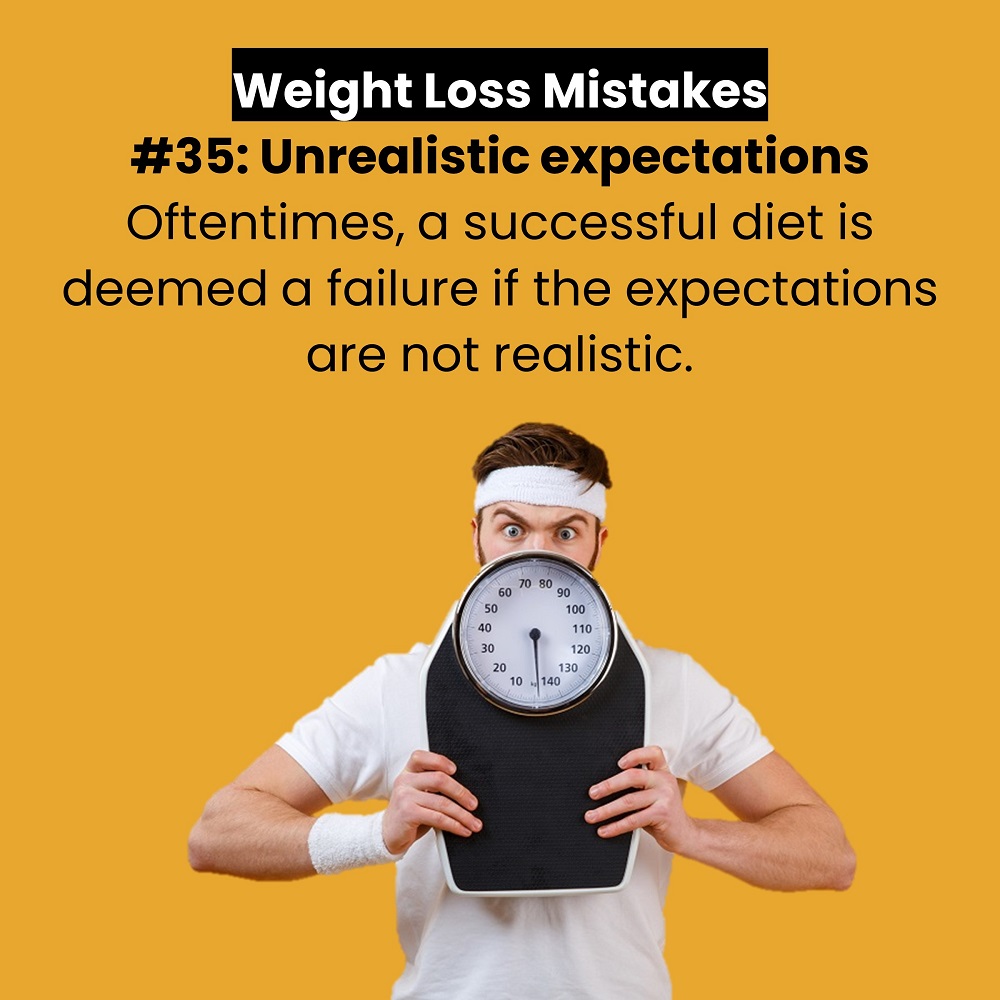
It is very important to have realistic expectations of how many pounds to shed and how long it will take to achieve that.
Oftentimes, a successful diet is deemed a failure if expectations are not realistic and achievable.
-
36. Giving up too soon
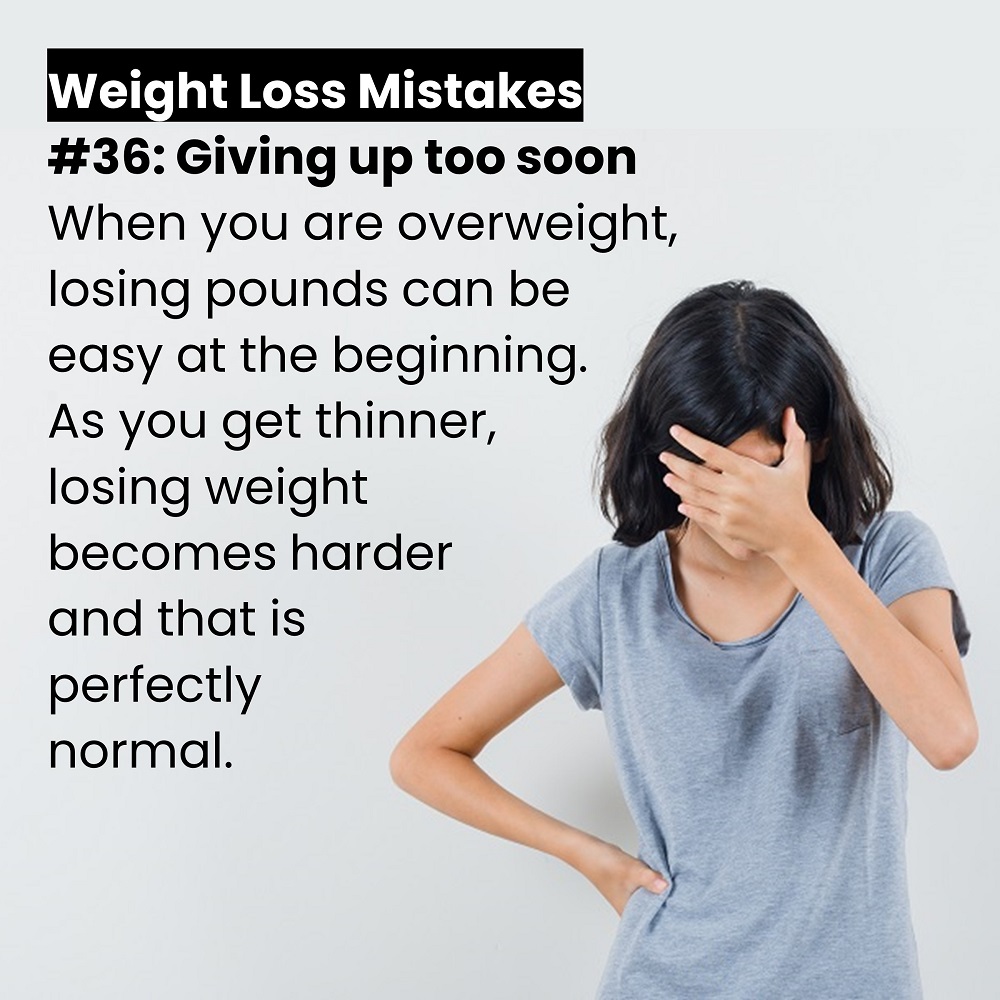
When you are overweight, losing pounds can be easy at the beginning. As you get thinner, losing weight becomes harder and that is perfectly normal.
People tend to benchmark the progress of their diet based on what they lost in the first week.
When they don’t see the same results in the weeks that follow they think that they are failing and eventually quit.
Stick to healthy eating choices regardless of what the scale says.
-
37. Having an all-or-nothing attitude
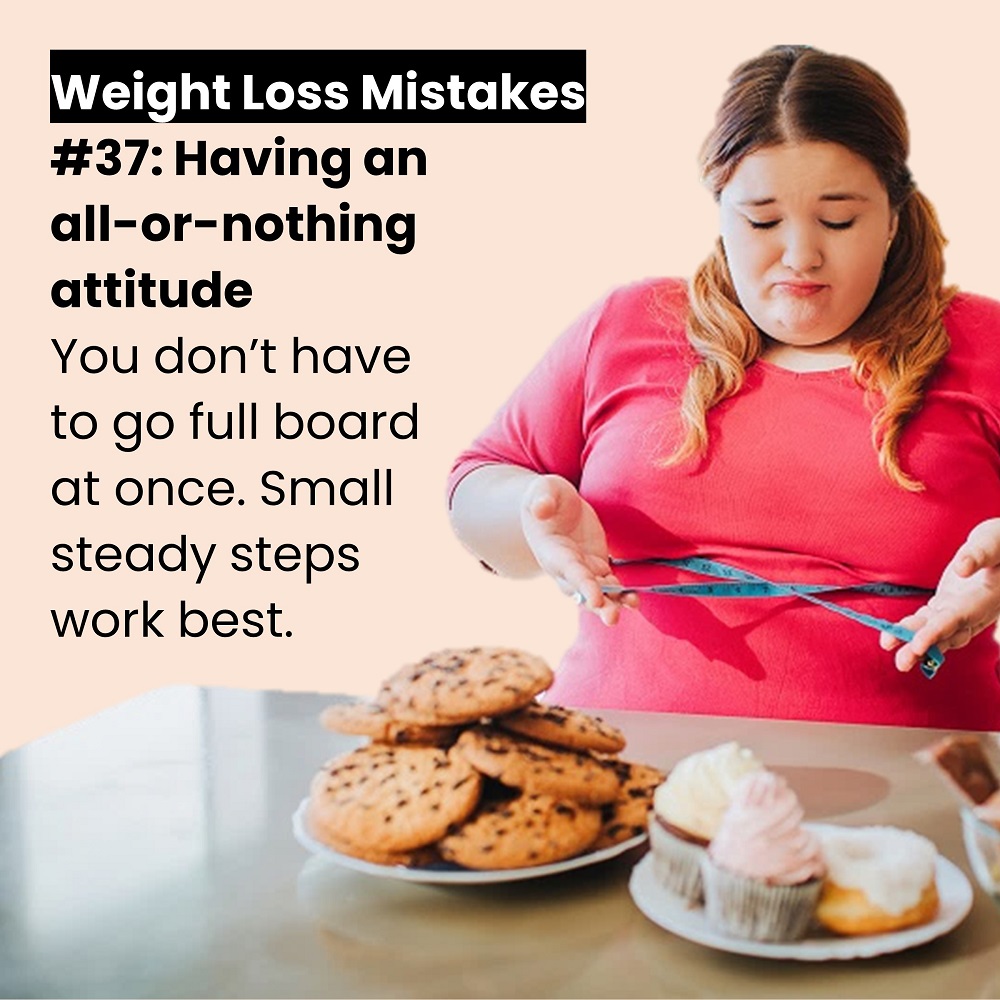
Take whatever measures that you can.
You don’t have to go full board at once. Start with just one thing and add more as you progress.
For example, you can decide to eat less bread and nothing else.
That is fine.
Start with this small improvement, it is better than nothing.
 Close
Close

























